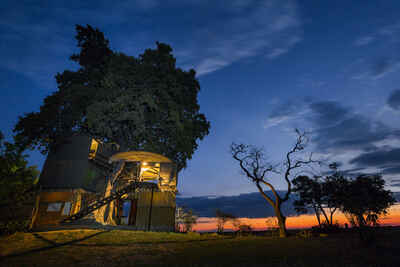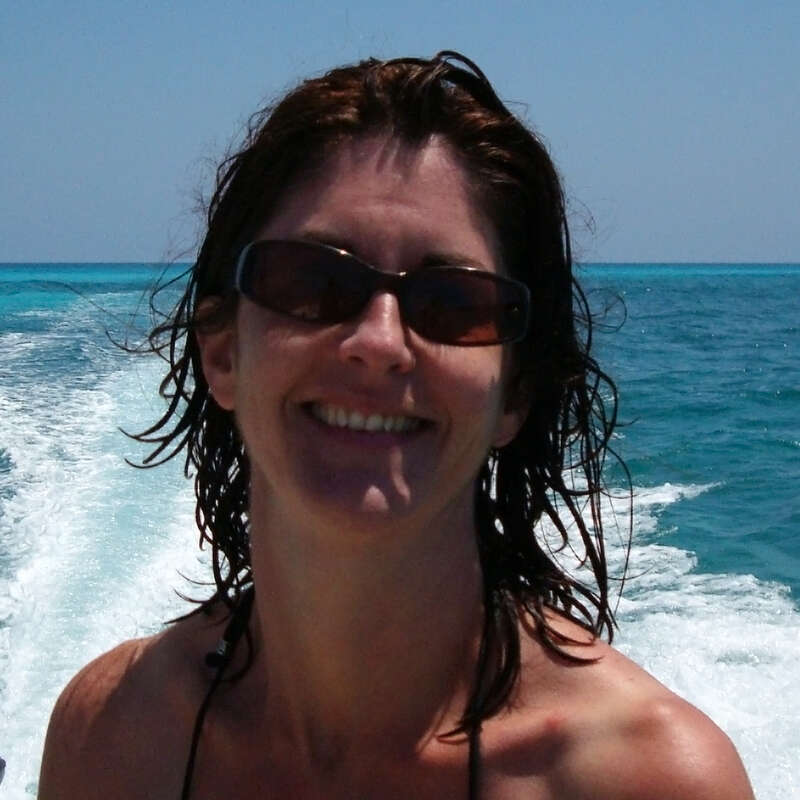About Jackalberry Tented Camp
Jackalberry Tented Camp lies in the far north of Namibia, on its own exclusive concession deep within Nkasa ...
... Rupara National Park (formerly Mamili National Park). It was initially opened in 2015 as a self-catering camp for those looking to enjoy unrivalled access to the park. Then in February 2016 the owners decided to change tack and it is now an intimate, fully catered and hosted eco-camp.
Small and remote, Jackalberry Tented Camp has a real wilderness feel. We think that it would suit those looking for something off the beaten track and a little adventurous without compromising on comfort.
Accommodation
4 tented rooms
Children
Best for 16+
Open
Mar–Jan (closed Feb)
Activities

4WD Safari

Birdwatching

Boat trip

Night drive

Private activities
Traveller reviews of Jackalberry Tented Camp
4 real, un-edited reviews from Expert Africa's travellers.
Arrived 17 Sep 2024, 3 nights
"Jackalberry Tented Camp review"
Overall rating: Good
Arrived 7 Dec 2022, 2 nights
"Jackalberry Tented Camp review"
Overall rating: Good
Arrived 17 Nov 2022, 2 nights
"Jackalberry Tented Camp review"
Overall rating: Excellent
Arrived 13 Sep 2018, 2 nights
"Jackalberry Tented Camp review"
Overall rating: Excellent
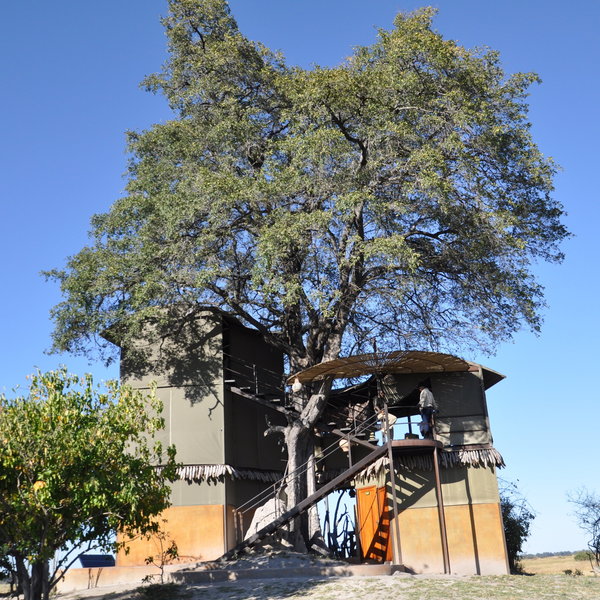
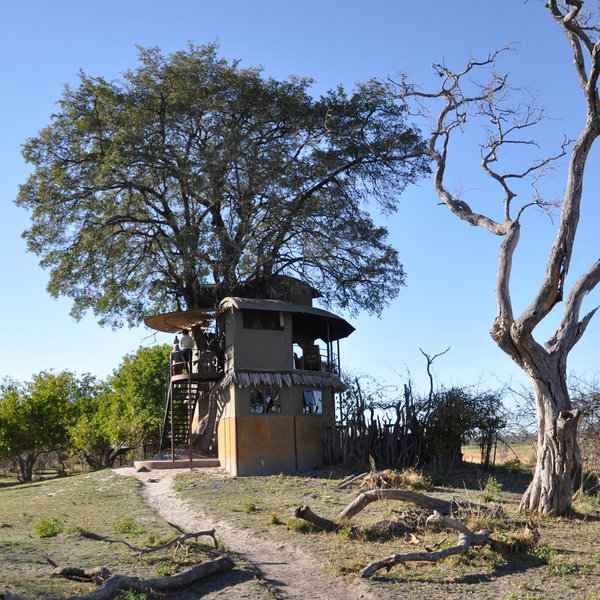

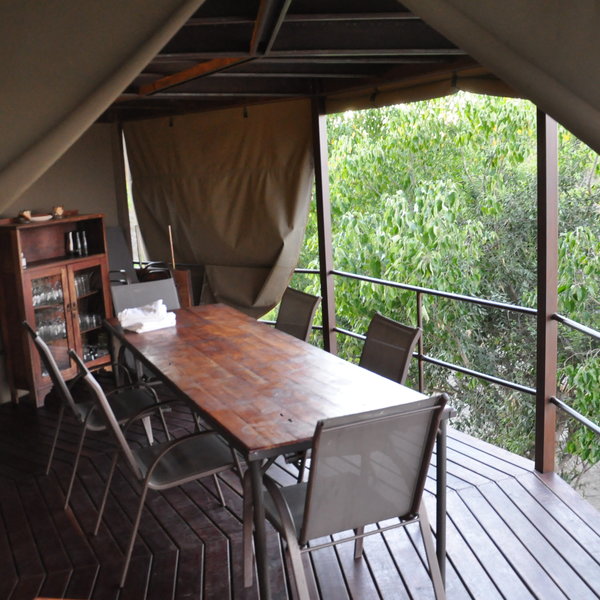
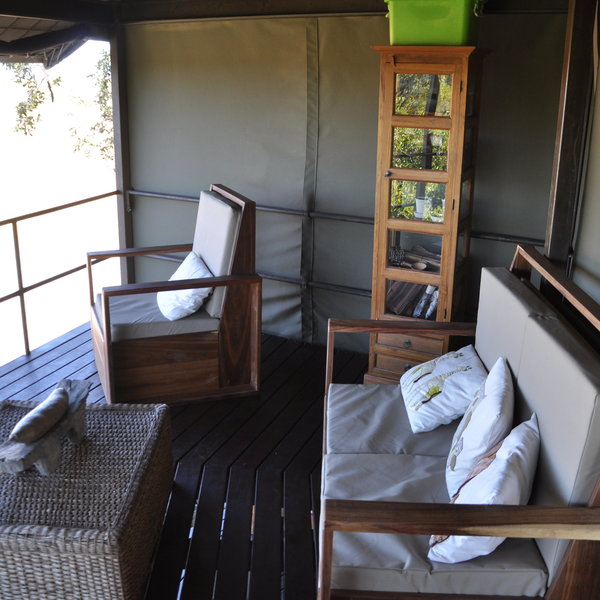
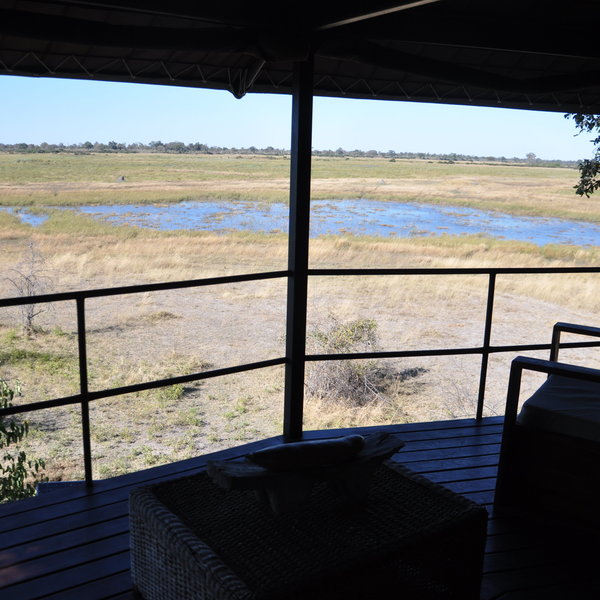
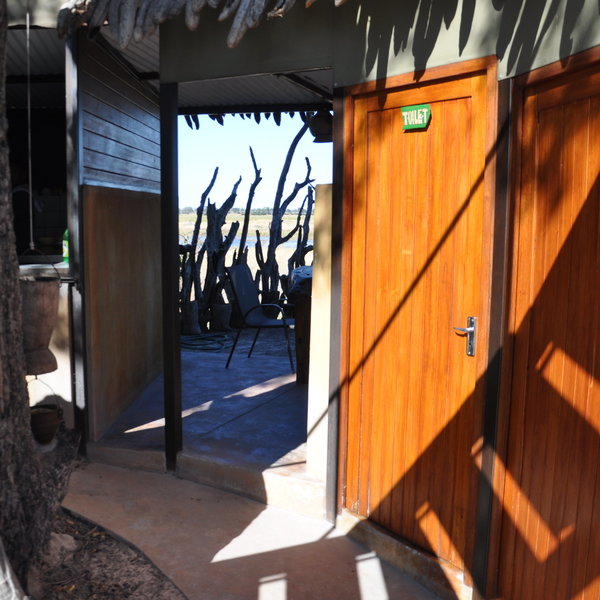
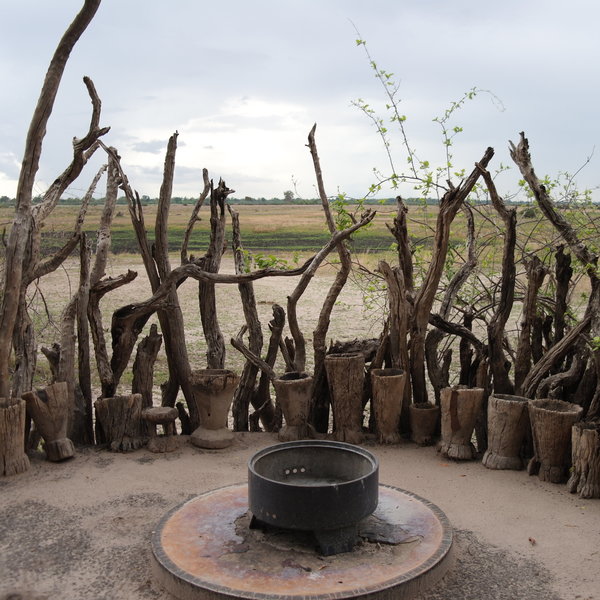
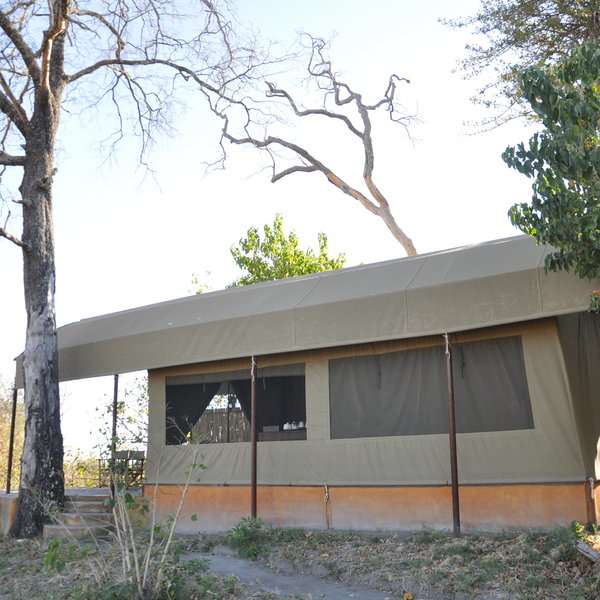
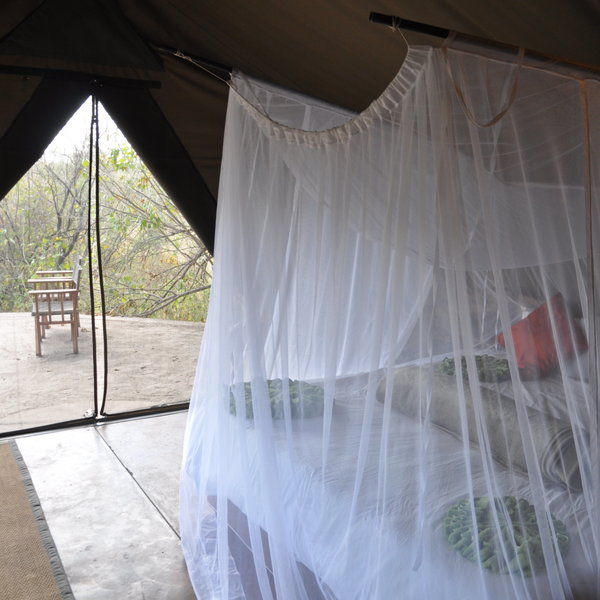
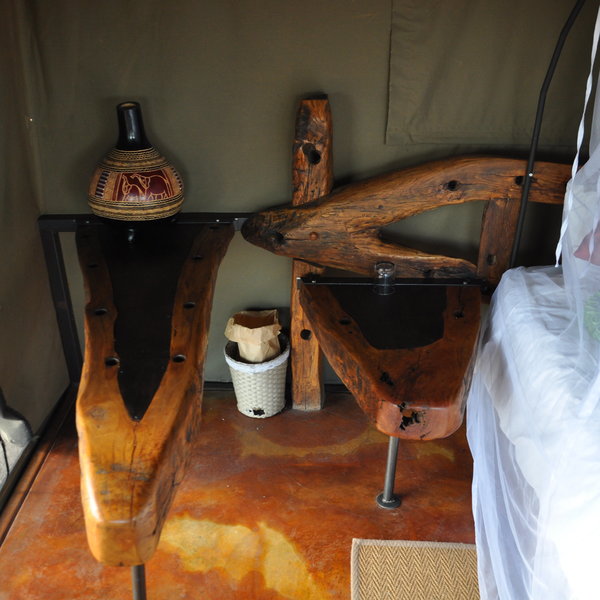
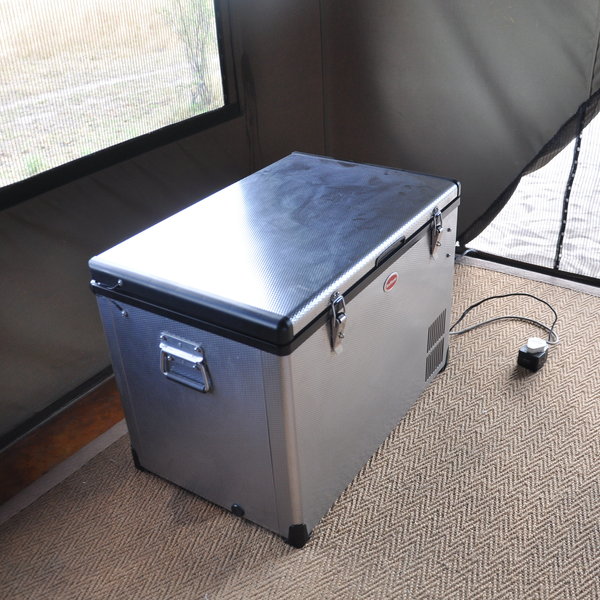
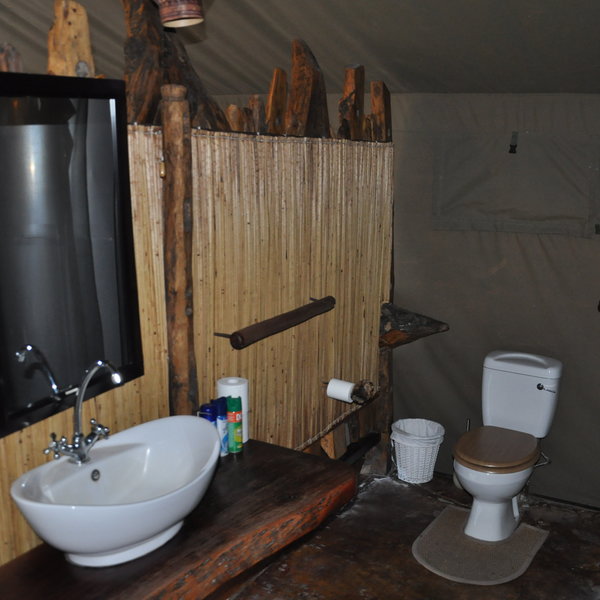
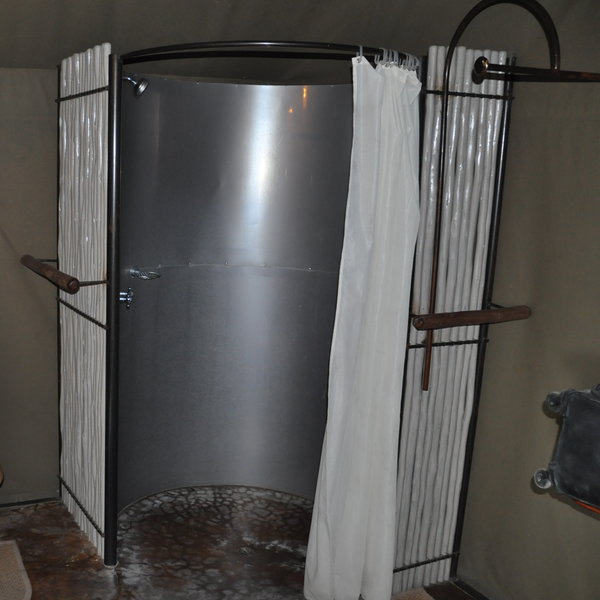
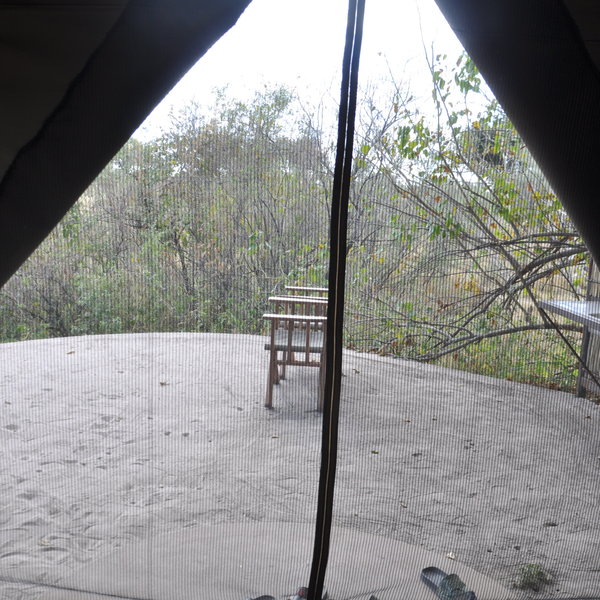
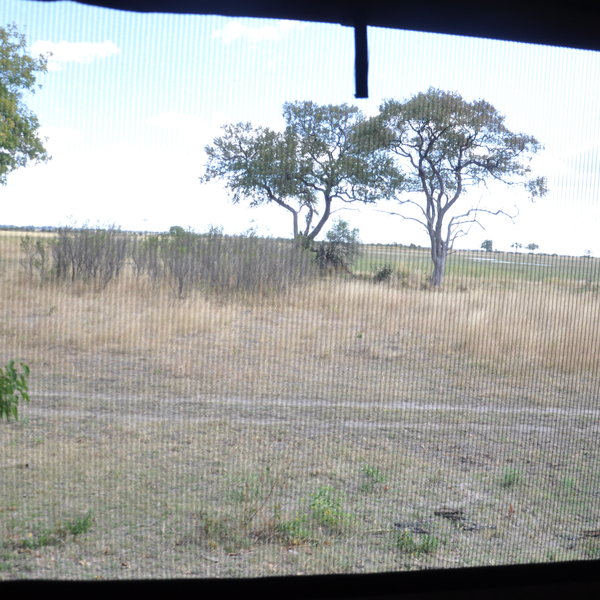
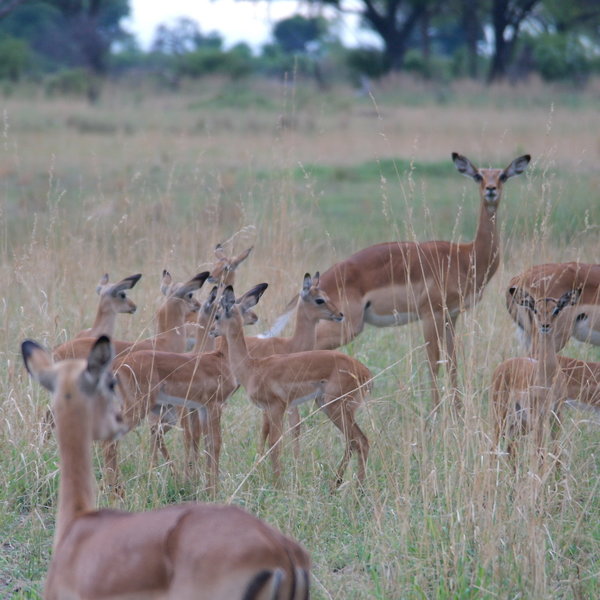
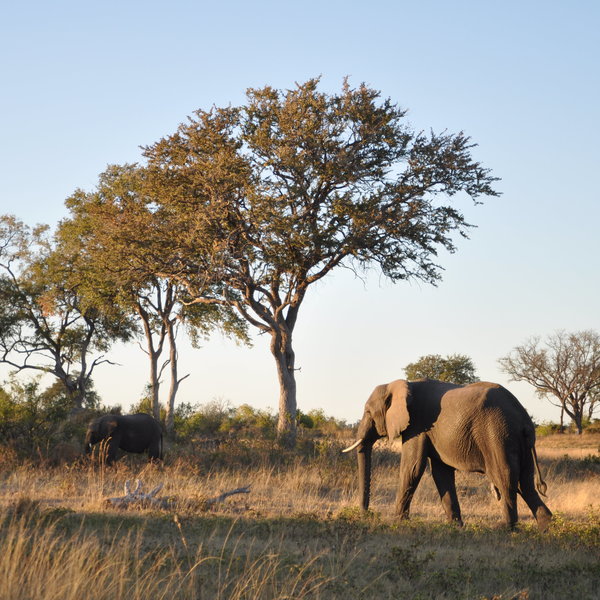
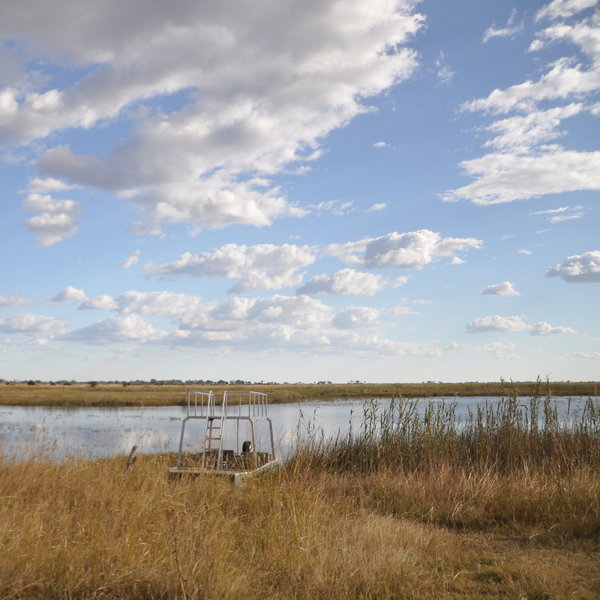
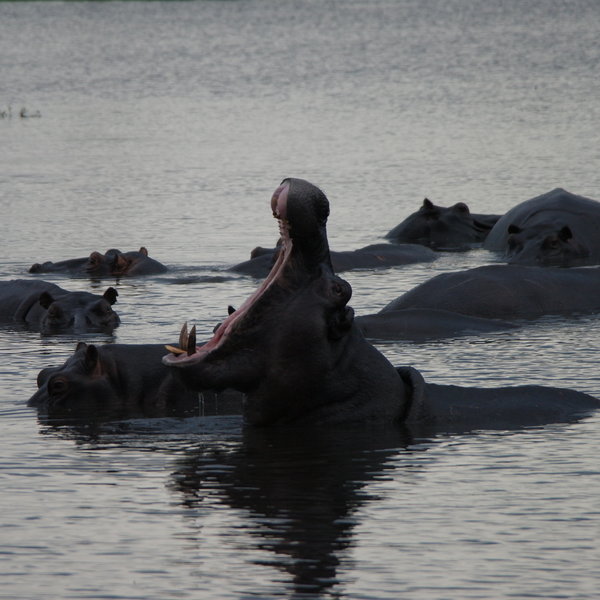
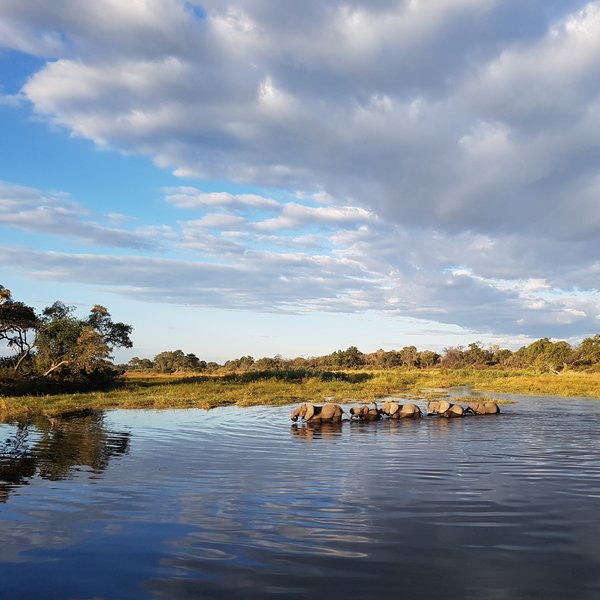
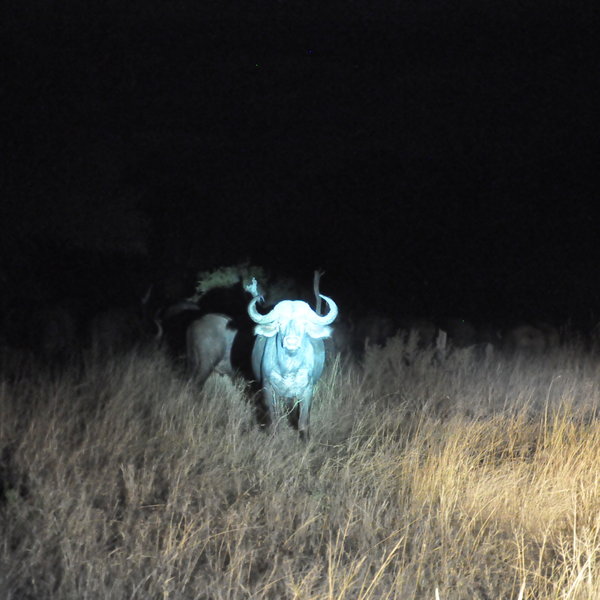
Expert Africa's gallery
When we travel we take lots of photos ourselves to give you a real and un-edited view of the safaris. See our 35 pictures of Jackalberry Camp to get the candid view.
View gallerySafaris visiting Jackalberry Camp
Just ideas, we'll always tailor-make a trip for you
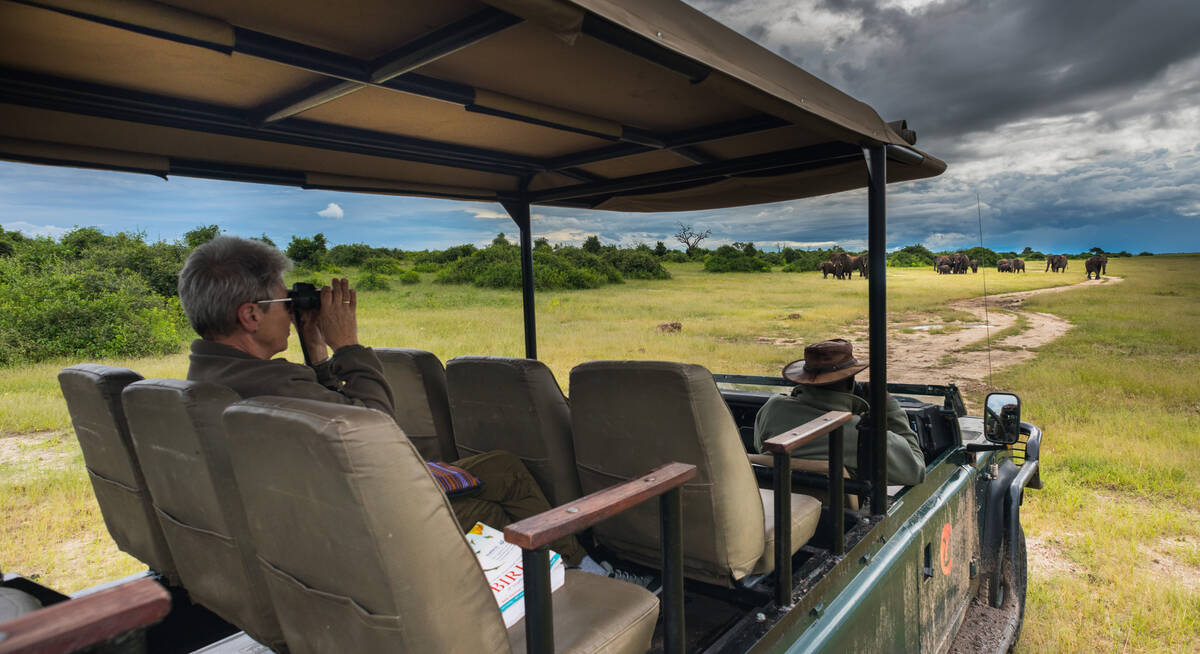
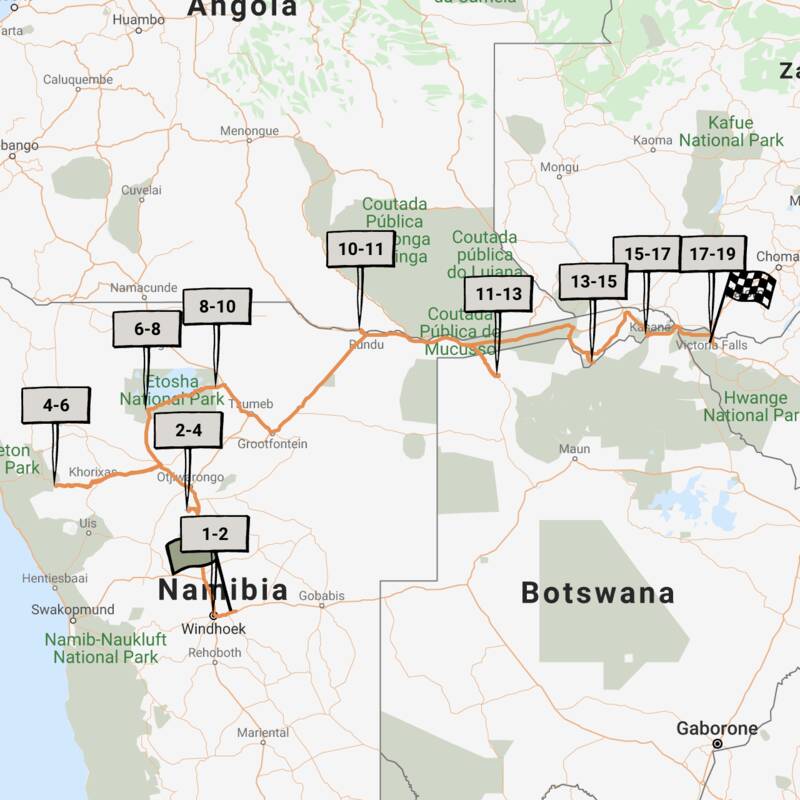
Pygmy Mouse Self-drive Safari
18 days • 10 locations • 3 country
WINDHOEK AIRPORT TO VICTORIA FALLS AIRPORT
A truly epic southern African self-drive safari adventure from Namibia’s mountains and deserts, along the lush Caprivi Strip to Botswana and Victoria Falls in Zimbabwe, staying at luxury lodges throughout.
Visiting Etosha, Victoria Falls and 6 other areas
US$9,800 - US$10,560 per person
Jackalberry Tented Camp: Our full report
Jackalberry Tented Camp lies in the far north of Namibia, on its own exclusive concession deep within Nkasa ...
... Rupara National Park (formerly Mamili National Park). It was initially opened in 2015 as a self-catering camp for those looking to enjoy unrivalled access to the park. Then in February 2016 the owners decided to change tack and it is now an intimate, fully catered and hosted eco-camp.
Jackalberry Tented Camp is a sister property to the excellent Nkasa Lupala Tented Lodge on the edge of the same park.
The camp has just four fairly simple tented rooms, accommodating a maximum of eight guests. Each room comes with twin beds or a double, a fridge/minibar that is filled on request, and a writing desk. An en-suite bathroom is set at the back behind an intriguing wooden partition, which is made from old bits of wood, such as cattle yokes, sourced from local villages. Furniture is fairly sparse but continues this rugged, wooden theme. The bedside tables, for example, are made from large, polished triangular- shaped planks and the headboard consists of large wooden beams that look as though they have had a very interesting previous life.
The rooms all have running hot and cold water and a power point, but please be aware that Jackalberry is an eco-camp in a remote location. Solar geysers heat the water, and electricity is produced from solar panels, so the camp urges you to charge electrical items sparingly and where possible during the day.
Outside each tent beneath a canvas awning is a small seating area and standpipe, a vestige from Jackalberry's days as a self-catering camp. Now this area serves as a great place to relax and enjoy a drink in your own private piece of wilderness. During our most recent stay, in July 2017, we loved the way that the tents almost blended into this remote, untouched landscape. This was accentuated when we watched the dark, bulky shapes of hippos and elephants trundle past the gauze of our tent windows during the night. In the morning, checking the footprints on the sandy path to our tent, it was clear that the animals paid little attention to these man-made structures.
The main area, sometimes referred to as Jackalberry Tower, is built over three levels around a giant jackalberry tree – the camp's namesake. At ground level is the kitchen and a small boma, complete with a firepit: the perfect place for an evening around the fire with friends and, on occasion, dinner by firelight.
Up a metal staircase on the first floor is the camp's reception area, which doubles as the dining room and bar with a communal dining table. It may be small but with its elevation and open-sided nature it affords superb views of the surroundings – making the squeeze for the camp's maximum eight guests, worth it.
At the top of the tower is a viewing deck/sundowner spot and curio cupboard. The views from here are spectacular and can be enjoyed from a small sofa and a couple of comfortable chairs. On a clear day, it is worth scanning the vista for game, as it is possible to see as far as the Botswana bank of the Kwando River.
Activities from Jackalberry focus on day and night game drives in Nkasa Rupara National Park and boat trips along the Kwando-Linyanti river that separates Botswana and Namibia.
The guide during our stay was very knowledgeable and engaging. On our boat trip, besides the numerous hippos and crocodiles, and trees dripping in bee-eaters and cormorants, the real highlight was a herd of elephants. At a point where the river opened out and was flat calm, we watched as a herd of seven tentatively made its way across to Namibia. Set against a sky dappled with fluffy white clouds reflected perfectly in the glass-like water, this was a truly memorable sighting.
After dinner we headed out on a night drive, where we saw quite a number of hippo grazing on the banks of the river and of the various pools that are dotted around the landscape. We also spotted a herd of around 180 buffalo and heard lion roaring from a nearby island.
The following morning we managed to the find the buffalo once again on an early drive, as well as seeing elephants just behind the camp.
Although the game densities in the Nkasa Lupala do not rival those across the river in Botswana, a broad selection of antelope calls this park home. We understand that there are large herds of buffalo and elephant later in the dry season, between about August and October, as well as occasional sightings of wild dogs and lion. A range of both migratory and resident birds is also found here.
Activities
4WD Safari
Birdwatching
Boat trip
Night drive
Private activities
Families & children
- Attitude towards children
- Jackalberry Camp welcomes children over the age of 16.
- Property’s age restrictions
- The camp does not accept children under the age of 16.
- Special activities & services
- None
- Equipment
- None
- Generally recommended for children
- We agree with the camp’s age restriction: it is not well-suited to children.
- Notes
- The camp is unfenced so there is a risk from dangerous wild animals such as elephant and hippo entering the reserve.
Food & drink
- Usual board basis
- Full Board & Activities
- Food quality
- During our stay in July 2017 we thoroughly enjoyed our meals at Jackalberry. As the kitchen is at the bottom of the tower, meals are brought up in a manually powered dumb waiter to the middle floor.
For breakfast, accompanied by freshly made coffee, there was a good selection of fruits, cereals, meats and cheeses as well as hot dishes cooked to order.
Light lunch options are on offer and included in the full board rate and homemade cakes are served mid-afternoon.
Dinner started with a creamy cauliflower soup. The main course was a nicely cooked game steak with mashed potato, carrots and greens, and our dessert was a delicious crème brulée. The meal was finished perfectly with a shot of either grappa or limoncello, a salute to the Italian roots of the owners. - Dining style
- Group Meals
- Dining locations
- Indoor Dining
- Further dining info, including room service
- Room service is not available.
- Drinks included
- Drinks are not included with the exception of a flask of filtered drinking water in the rooms.
Our travellers’ wildlife sightings from Jackalberry Camp
Since mid-2018, many of our travellers who stayed at Jackalberry Tented Camp have kindly recorded their wildlife sightings and shared them with us. The results are below. Click an animal to see more, and here to see more on our methodology.

100% success

75% success

75% success

75% success

67% success

50% success

50% success

33% success

25% success

25% success

0% success

0% success

0% success

0% success

0% success

0% success

0% success
Getting there
- Location
- Caprivi Strip, Namibia
- Ideal length of stay
- Given the remote location we suggest a minimum of two nights here.
- Directions
- Nkasa Rupara National Park is accessible only by 4WD. Even if you have a suitable vehicle, Expert Africa would advise leaving it at the village of Sangwali and transferring to Jackalberry Camp in one of their vehicles driven by an experienced guide.
- Accessible by
- Self-drive
Special interests
- Birdwatching safaris
- Deep within the remote Nkasa Rupara National Park, close to the Linyanti River, Jackalberry Tented Camp is a great location for birdwatching in Namibia. A variety of activities allow guests to explore the park’s varied habitats in search of avifauna.
- See ideas for Birdwatching safaris in Namibia
- Private safari camps & lodges
- With just four tented rooms, Jackalberry Tented Camp on the Caprivi Strip can be booked on an exclusive-use basis for groups or families travelling together. This would be a fantastic way to enjoy this spectacular corner of Namibia.
- See ideas for Private safari camps & lodges in Namibia
Communications
- Power supply notes
- As all tAlthough power is supplied 24/7, it is best used during daylight hours as it is 100% solar-generated. Guests are asked not to use hairdryers.
- Communications
- There is no cellphone service or WiFi.
- TV & radio
- None
- Water supply
- Borehole
- Water supply notes
- The water is clean but not suitable for human consumption.
Hot water is provided by solar geysers so please bear this in mind, as this may not be piping hot especially in the morning, evening or on a cloudy day.
Health & safety
- Malarial protection recommended
- Yes
- Medical care
- The nearest doctor is at the Sangwali clinic, and the nearest hospital is in Katima Mulilo.
- Dangerous animals
- High Risk
- Security measures
- None.
- Fire safety
- There are fire extinguishers outside all the tented rooms and in the main areas.
Useful info
- Disabled access
- Not Possible
- Laundry facilities
- Not offered – Jackalberry is an eco-camp with limited water supply so a laundry service isn’t offered.
- Money
- The camp doesn't offer foreign exchange services. There were no safes in the rooms at the time of our visit.
- Accepted payment on location
- Payment can be made with Visa or Mastercard, or in cash using Namibian dollars or South African rand.
Plan and book your trip with Expert Africa
All of our trips are tailor-made, so we'll always adapt them to suit you. Talk to an Expert and let us plan and arrange your perfect trip.

Talk to an Expert
Call or email us now! We’ll match you with the Specialist in our team who is best suited to help you. Then together we can start planning your trip.

Set up your itinerary
Based on our experience and your ideas, your specialist will create a detailed, costed itinerary. We’ll refine it together, until we have a trip that you’re perfectly happy with.

Prepare for your trip
The same Specialist will make the seamless arrangements for your trip, send you detailed travel documents, and be available to answer any questions before you depart.

Travel with peace of mind
After you set off, you’ll be cared for by our partners in Africa, most of whom have worked with Expert Africa for decades. And if you ever need us urgently, we’re available 24/7.

When you return
We love to learn about your trip, and so will always be grateful if you’ve the time to give feedback to your Specialist when you return.
Jackalberry Tented Camp's location
Look closer at the environment and surroundings of Jackalberry Camp.
Other lodges in Caprivi Strip
Alternative places to stay in this same area.

Ndhovu Safari Lodge
Ndhovu is a simple riverside lodge, with tents that are reminiscent of safaris a decade or two ago.
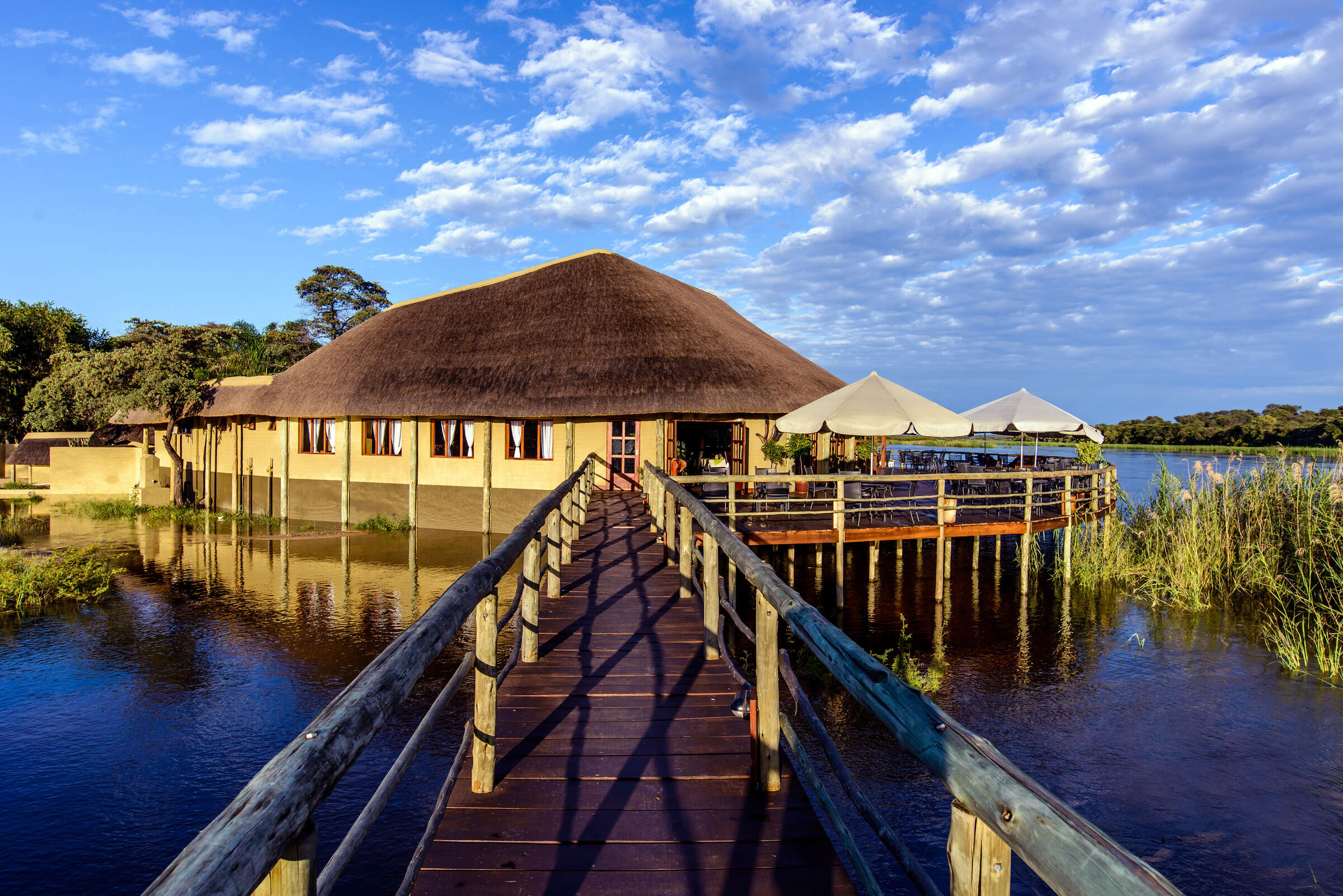
Hakusembe Lodge
Hakusembe River Lodge is a substantial lodge with a superb location on the Kavango River.
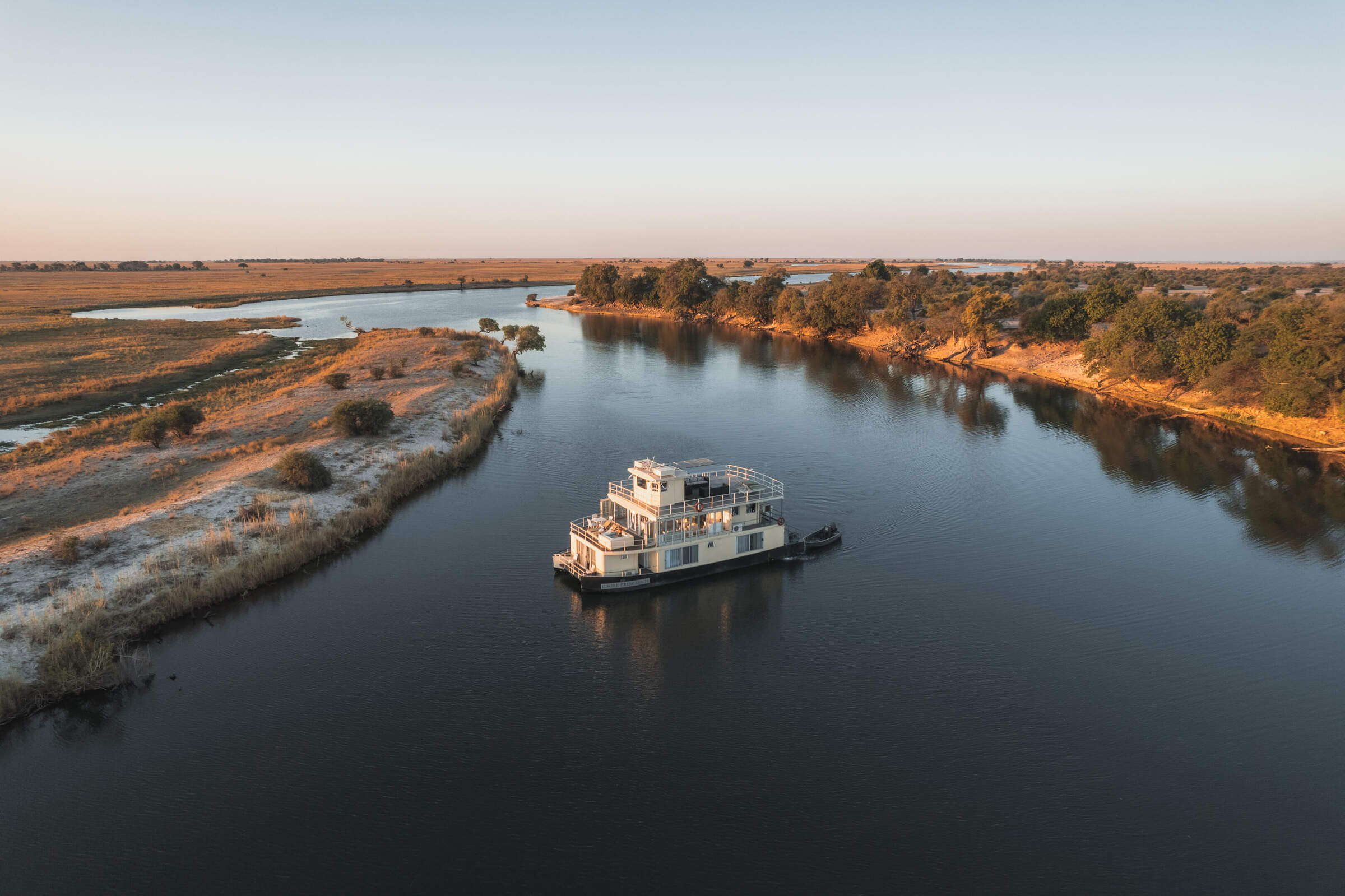
Chobe Princesses
The Chobe Princess houseboats offer a memorable way to explore the Chobe and Zambezi Rivers in Namibia's Caprivi. Perfect for a couple or for a group of family or friends.
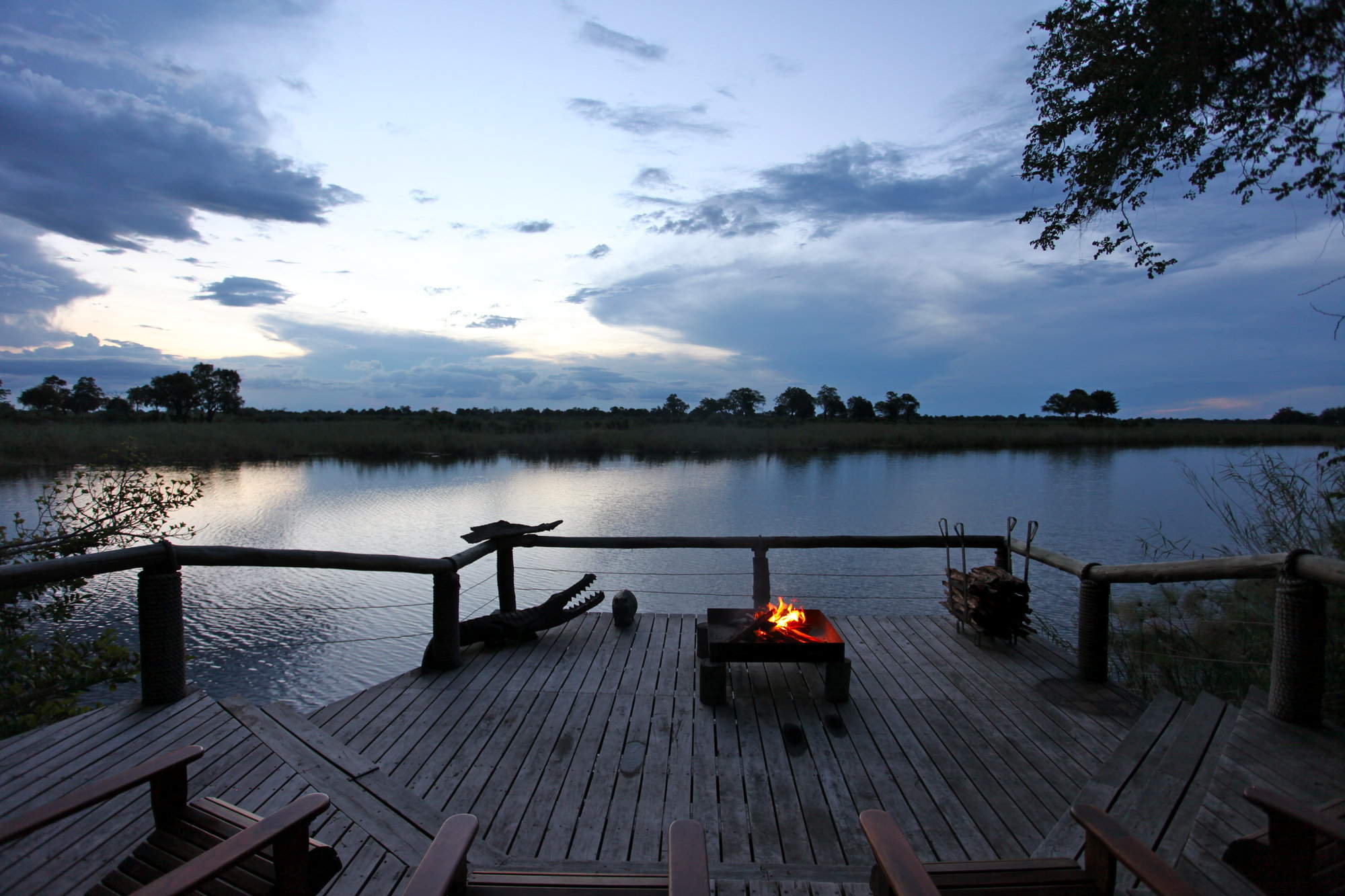
Lianshulu Lodge
Beside the Kwando River, within Mudumu National Park, Lianshulu is a small safari lodge offering 4WD safaris and river trips – with particularly good birdlife.
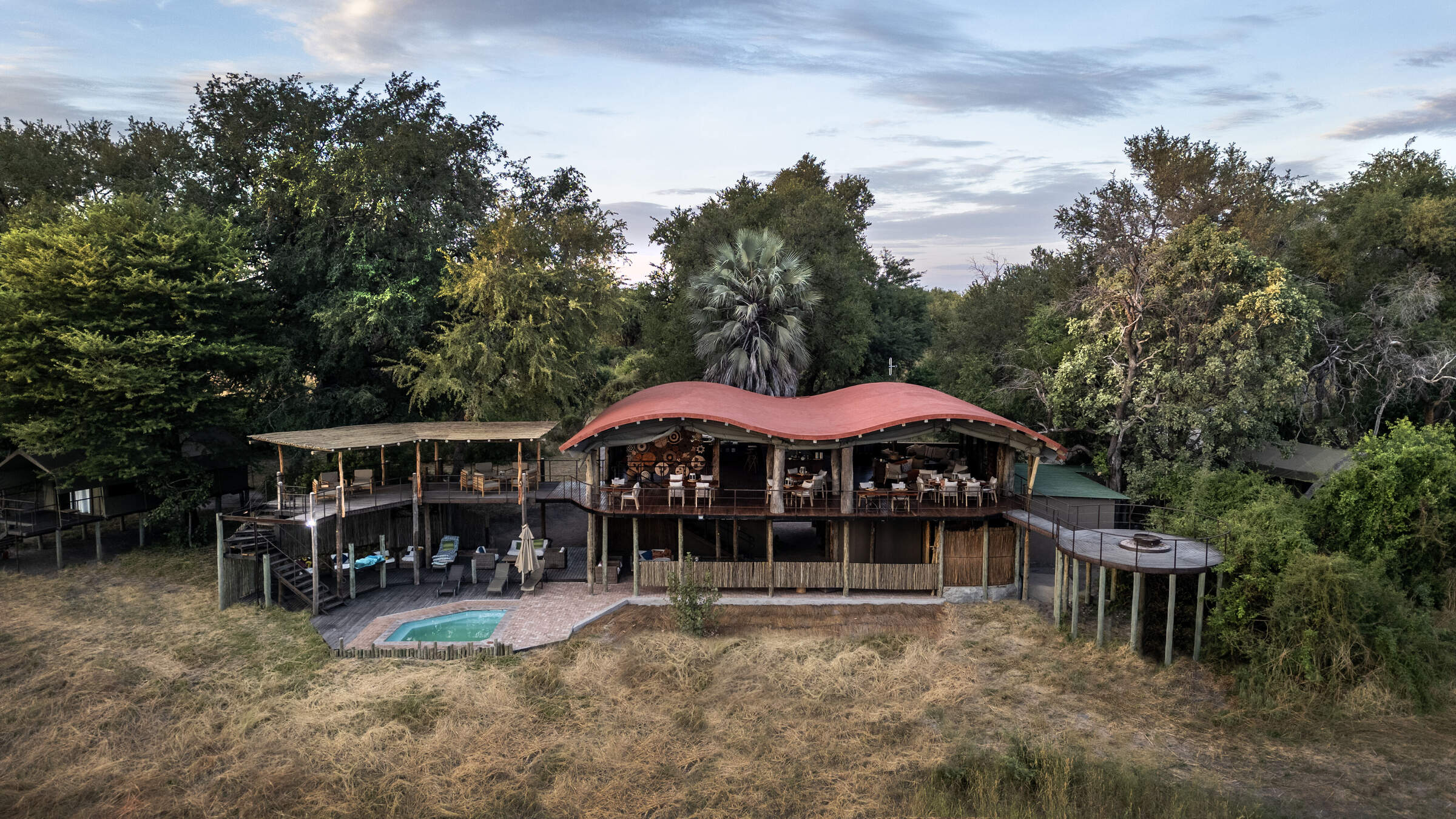
Nkasa Lupala
Peaceful Nkasa Lupala is a comfortable lodge in a remote and little-explored area close to Nkasa Rupara National Park.
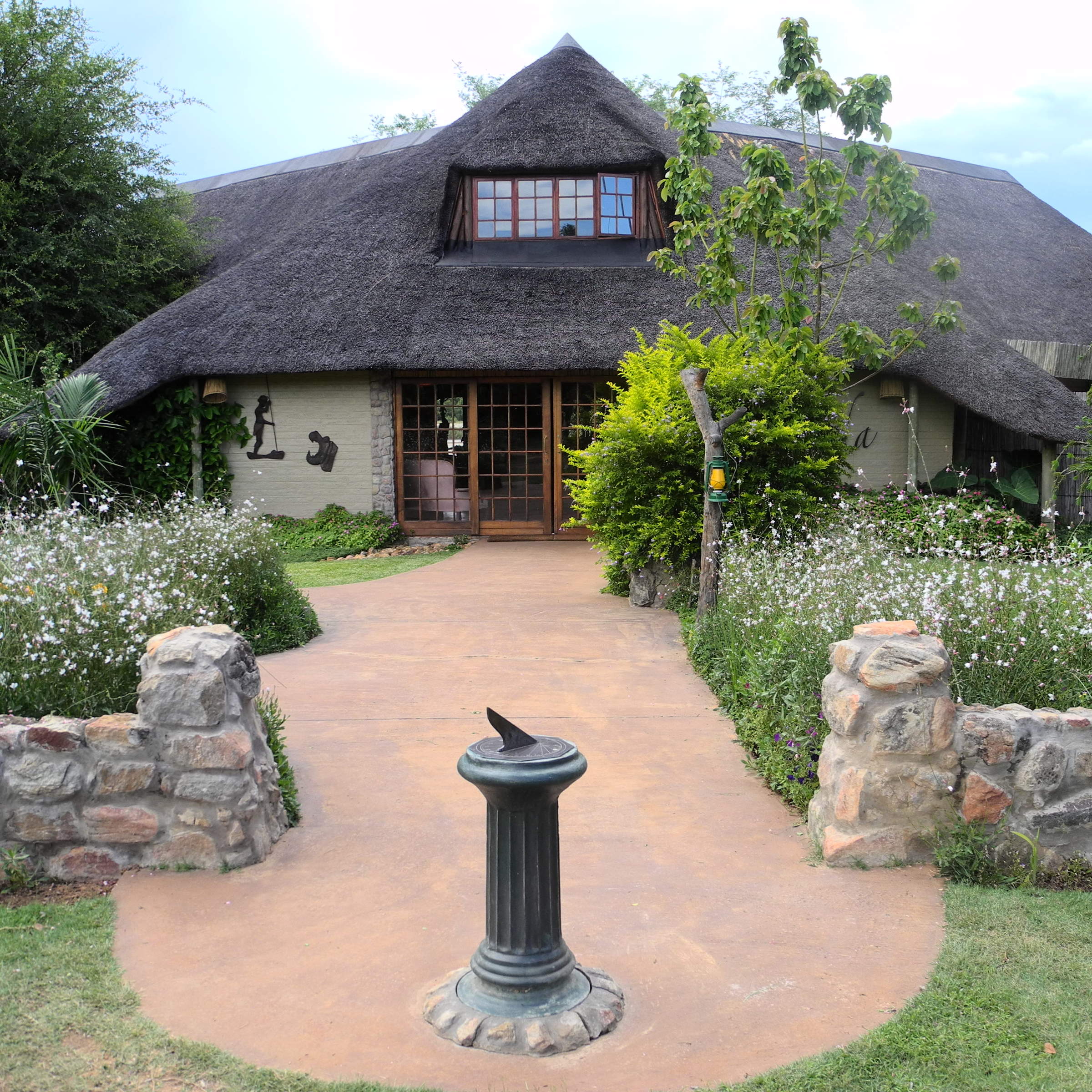
Nunda River Lodge
NNunda River Lodge overlooks a pretty part of the Kavango River near Popa Falls and the productive Mahango National Park.
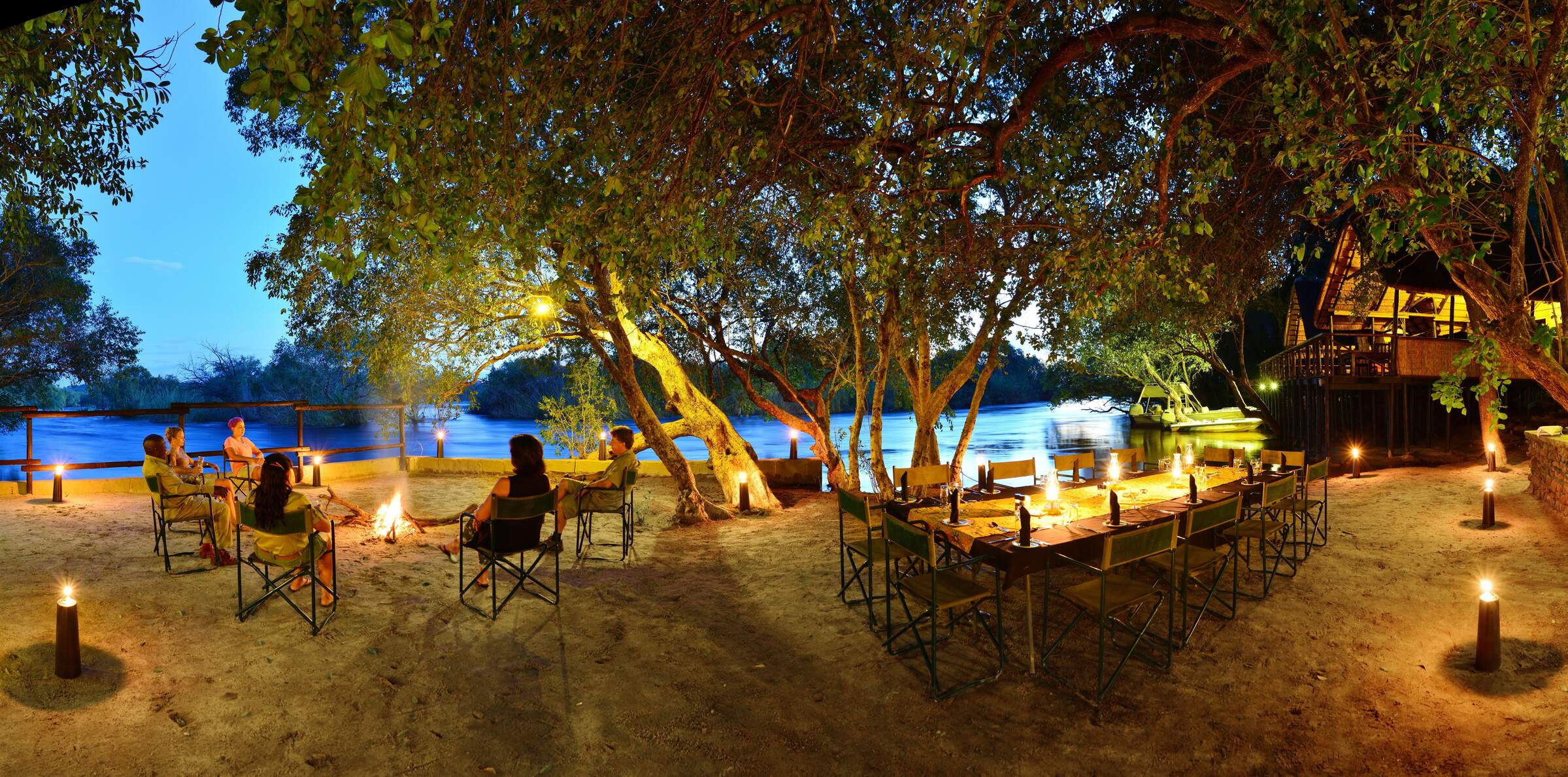
Ichingo Chobe Lodge
Safari holiday in Namibia's Caprivi Strip, staying at Ichingo Chobe River Lodge on Impalila Island.
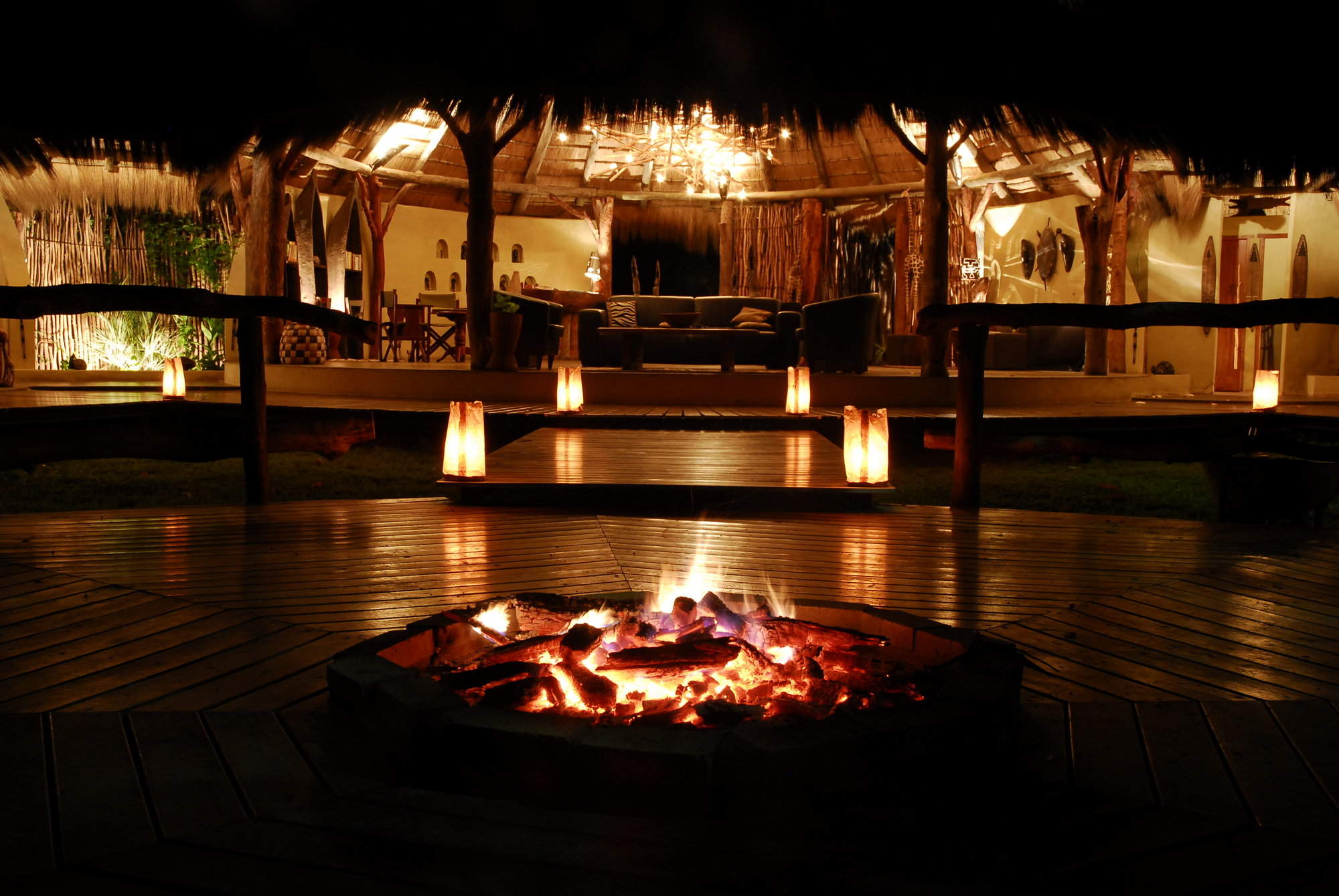
Camp Kwando
Near to Mudumu National Park, Camp Kwando is a comfortable and unfussy option with opportunities for game drives, boat safaris and fishing.
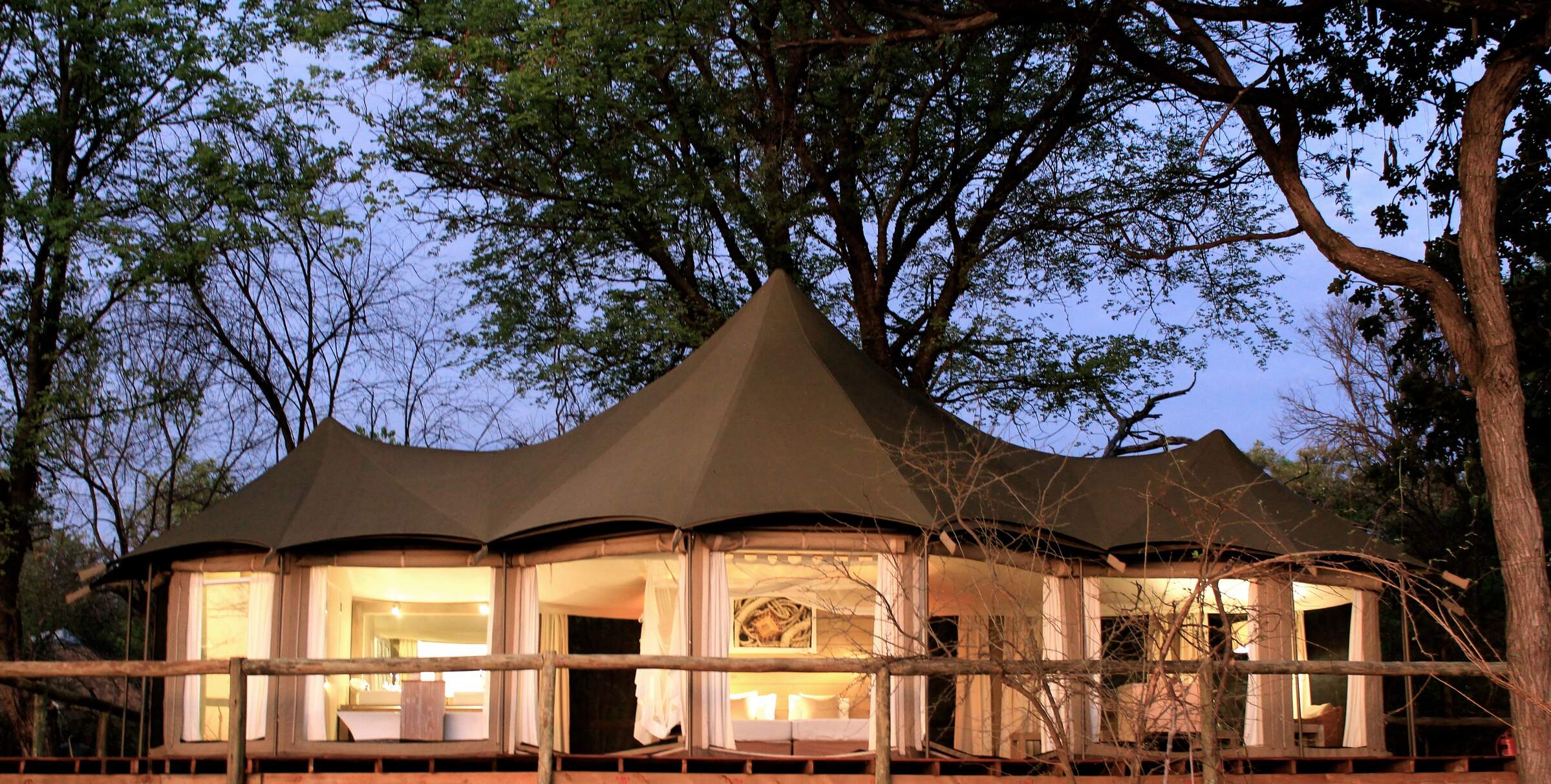
Nambwa Tented Lodge
A beautiful safari lodge In the remote Bwabwata National Park, Nambwa Tented Lodge brings serious comfort to a relaxing safari.
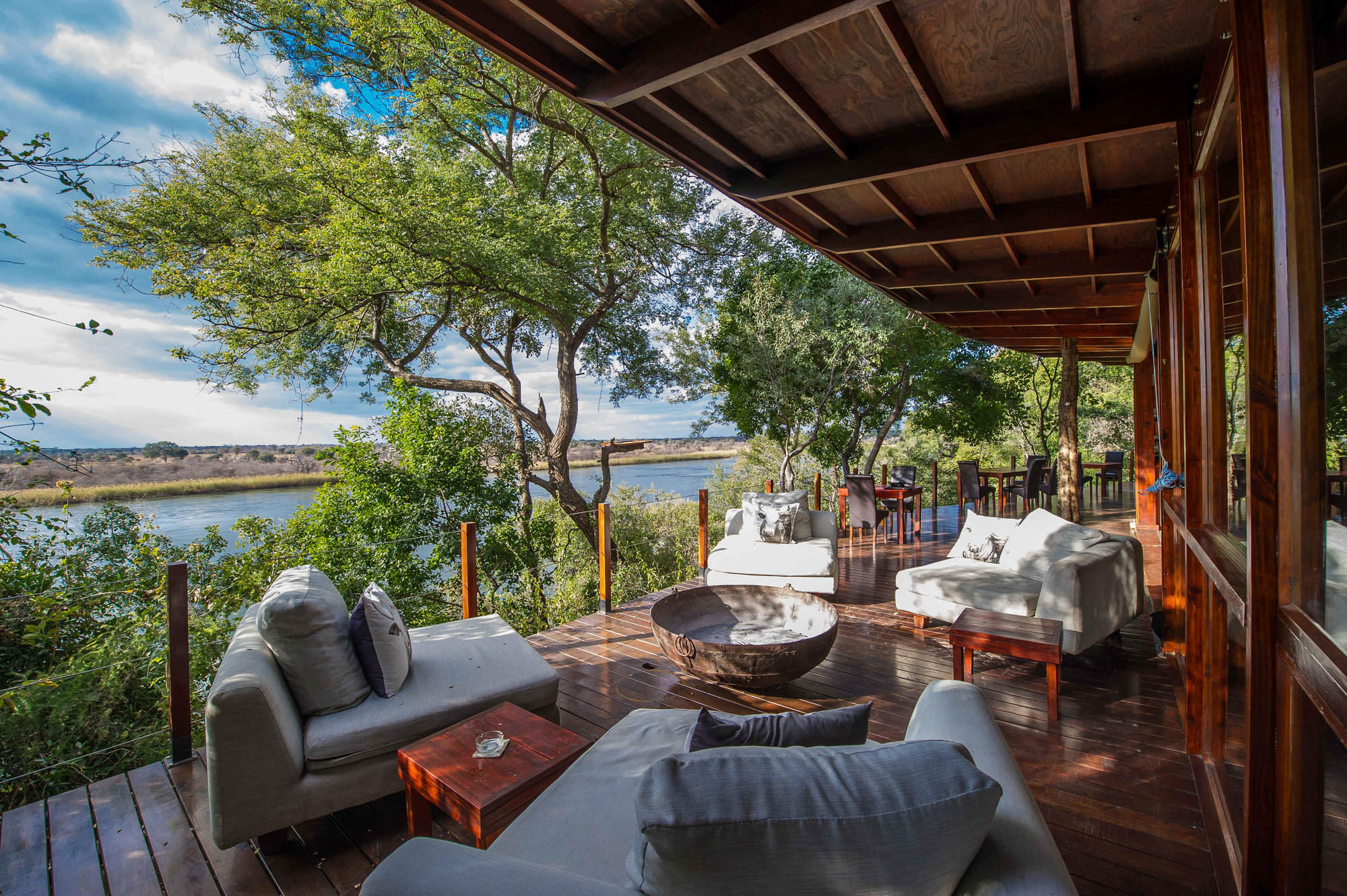
River Dance
Build on stilts on the banks of the Kavango River, River Dance Lodge has great views, a relaxed ambience and excellent birdlife.
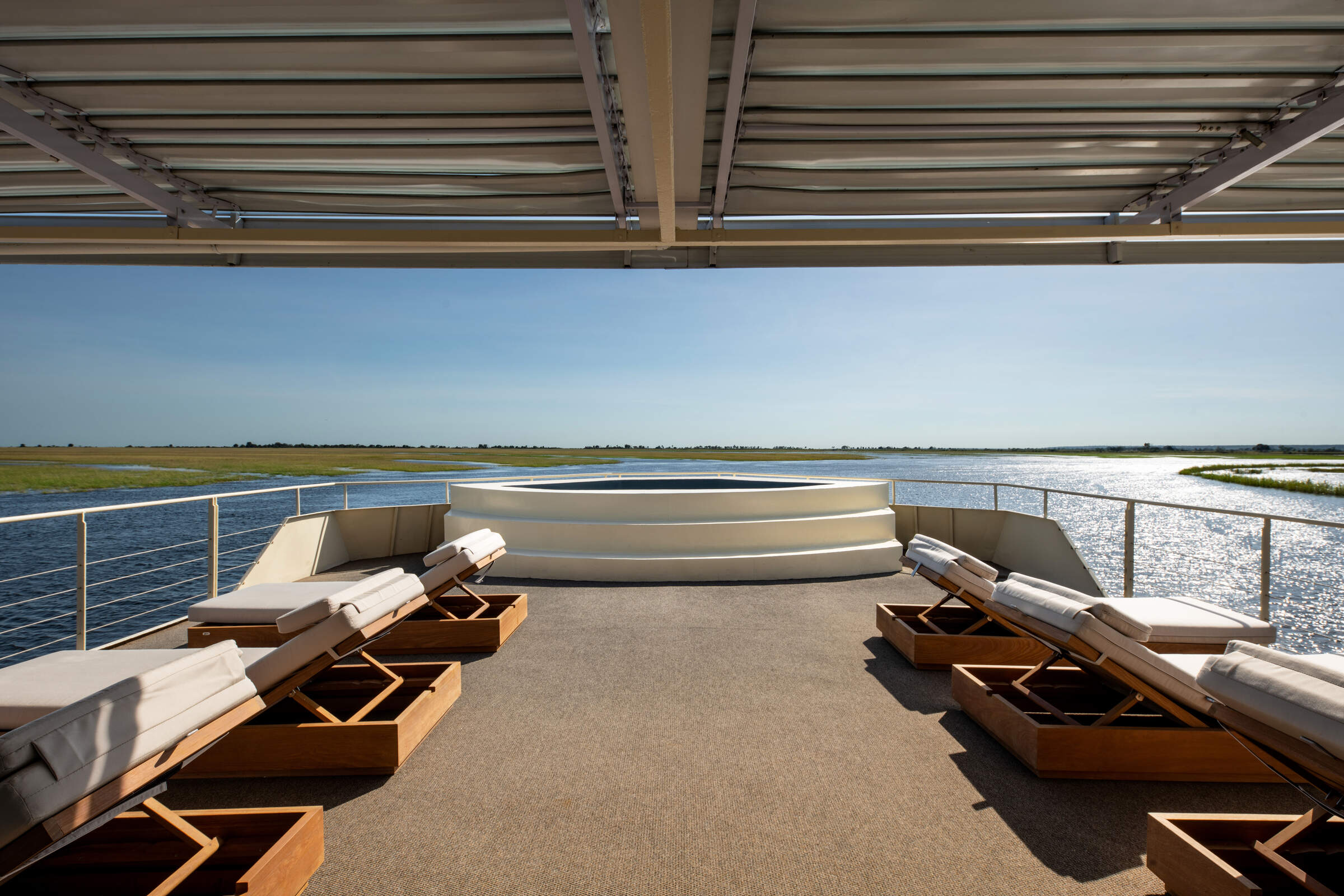
Zambezi Queen
The Zambezi Queen offers luxurious two- and three-night cruises along the game-rich Chobe River, including game viewing by small boat and 4WD as well as catch-and-release fishing.
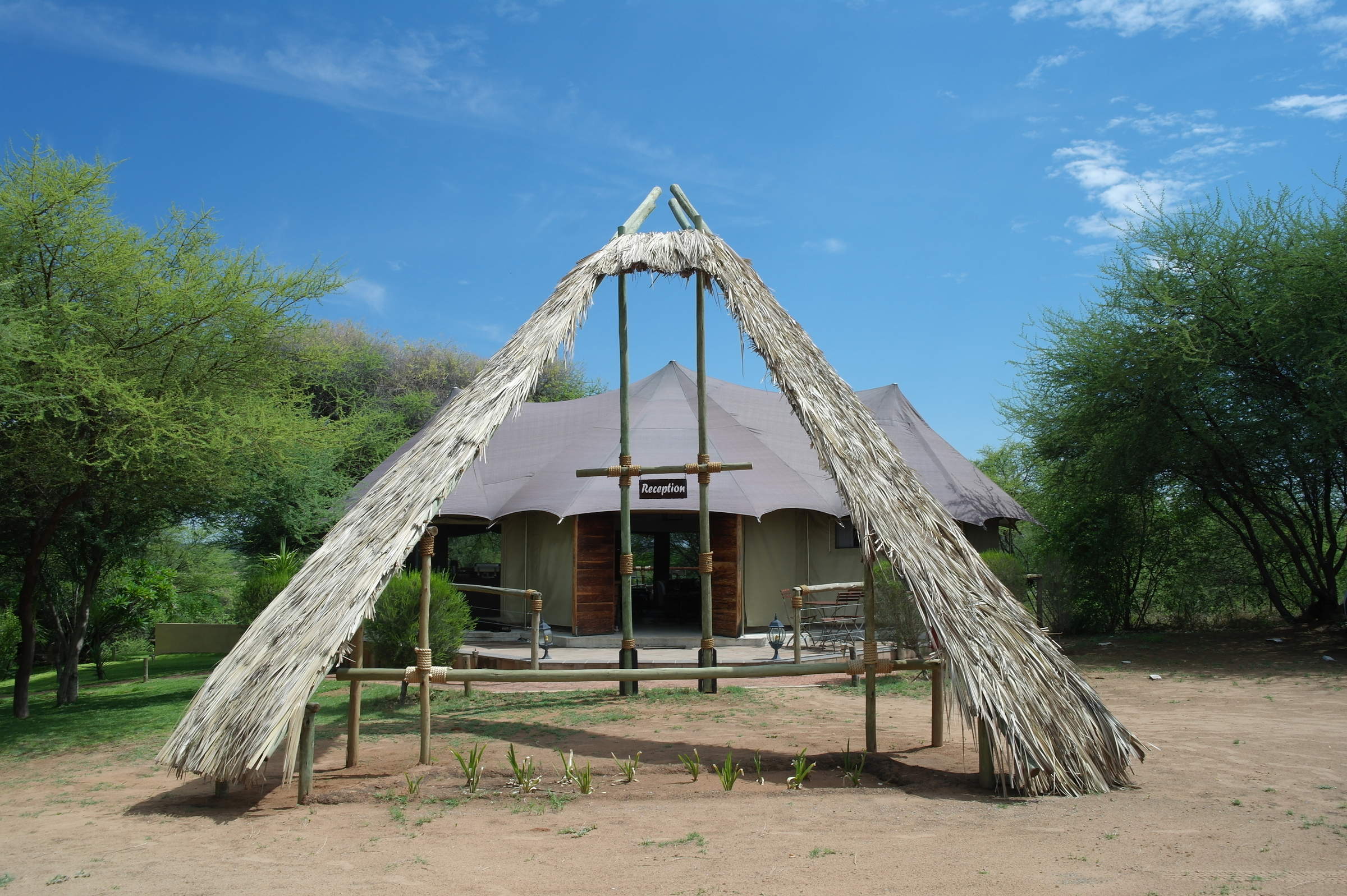
Taranga Lodge
Situated on the banks of the Kavango, Taranga Safari Lodge works as a convenient stopover before going onto explore the Caprivi.
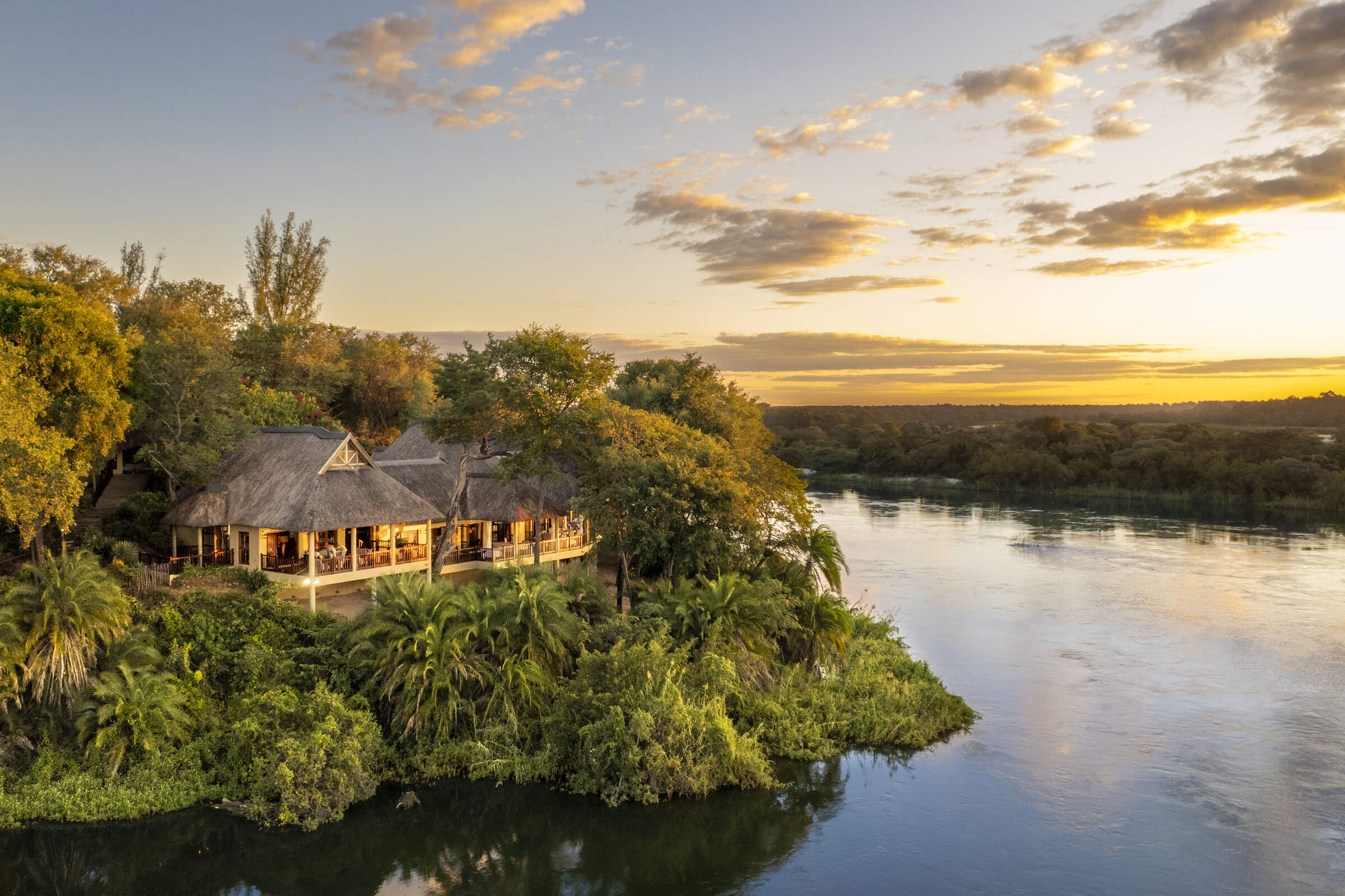
Divava Lodge & Spa
The substantial Divava Okavango Lodge & Spa offers plenty of pampering opportunities in an unspoilt riverside setting
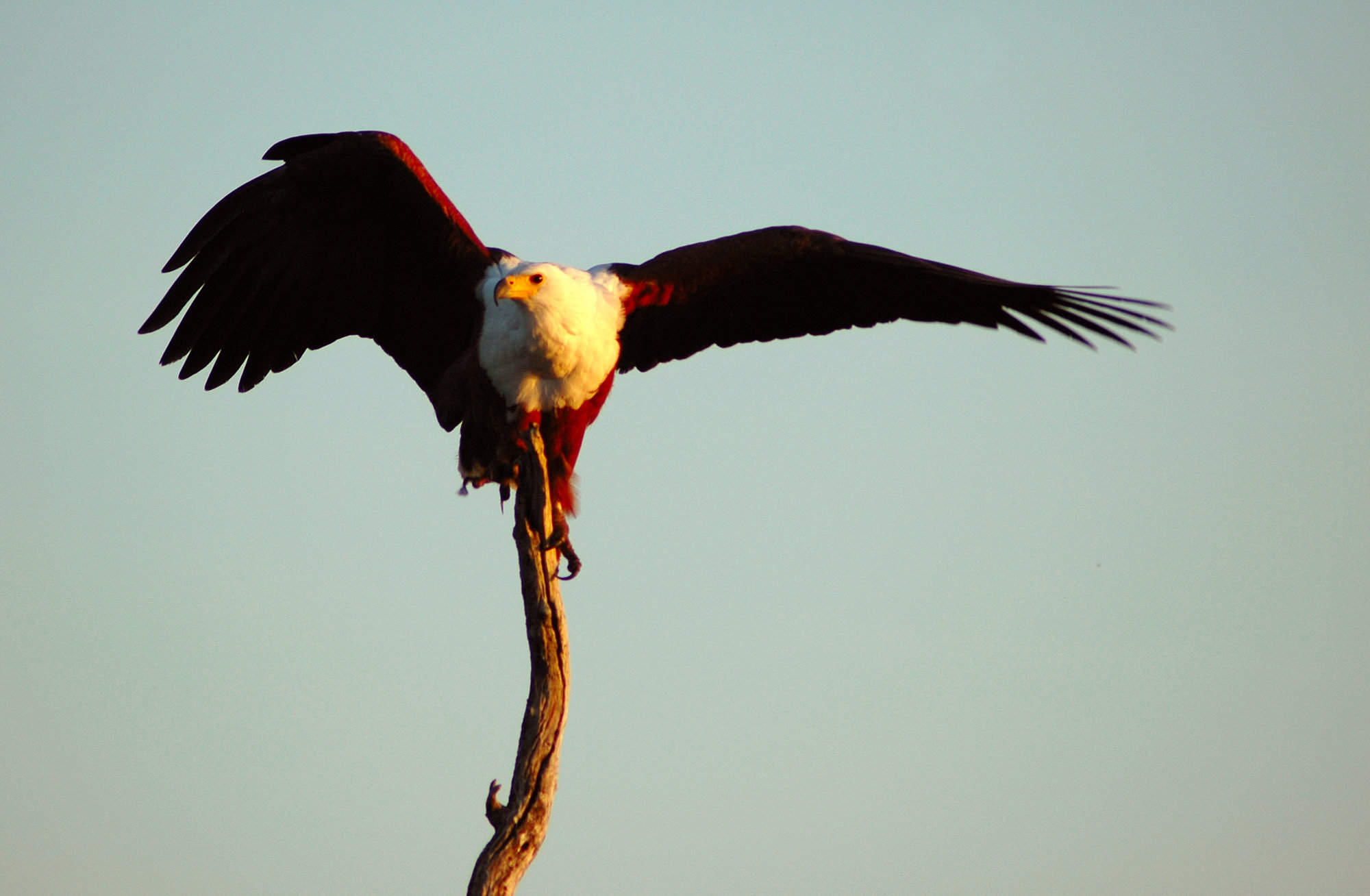
Cascade Island Lodge
Cascade Island Lodge, near Kasane in the Caprivi Strip is a very luxurious, high end option for those seeking peace and privacy on the Zambezi River.
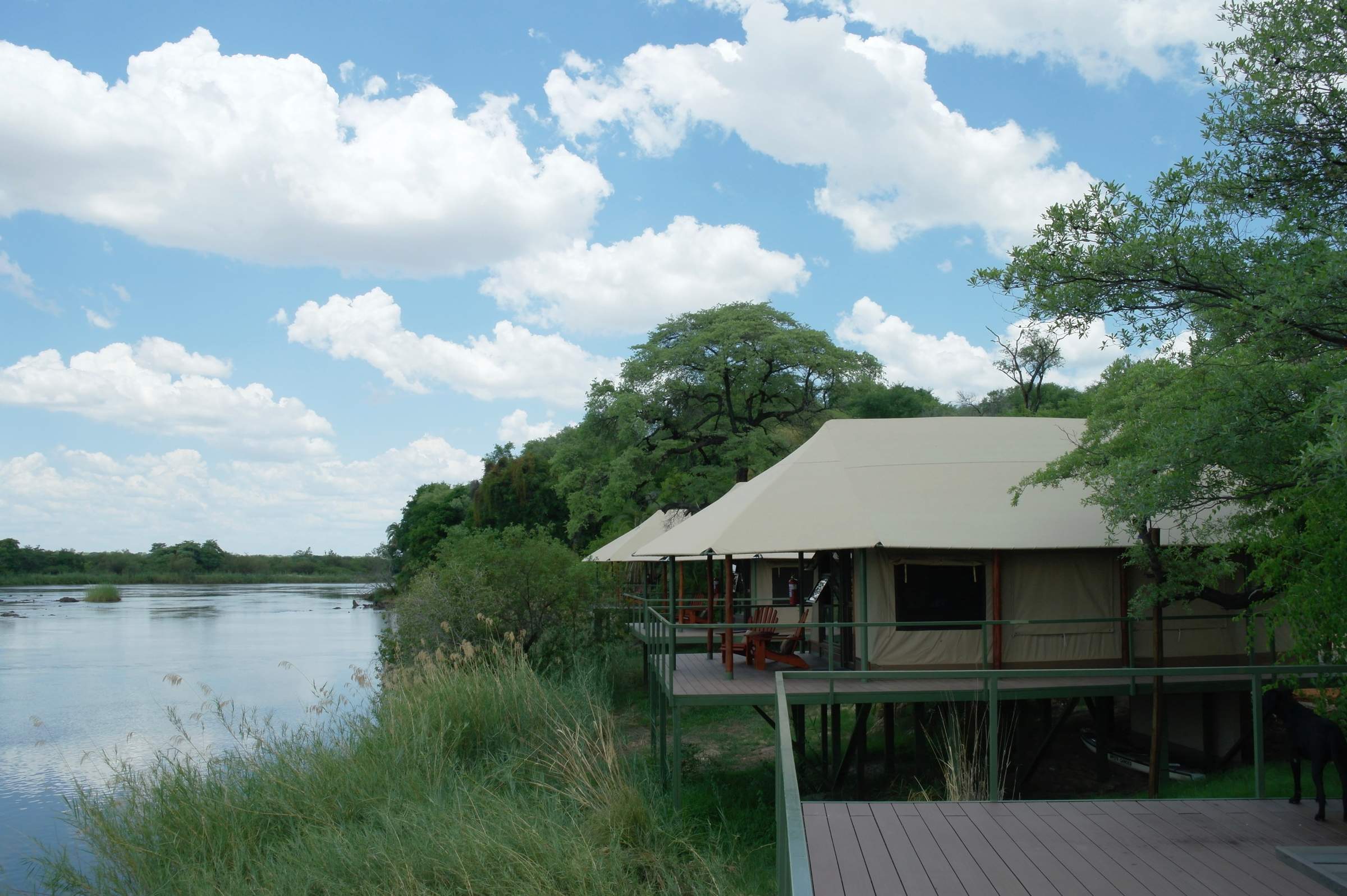
Shametu Lodge
Shametu River Lodge has the best views of the Popa Rapids of any private lodge in the Divundu area.
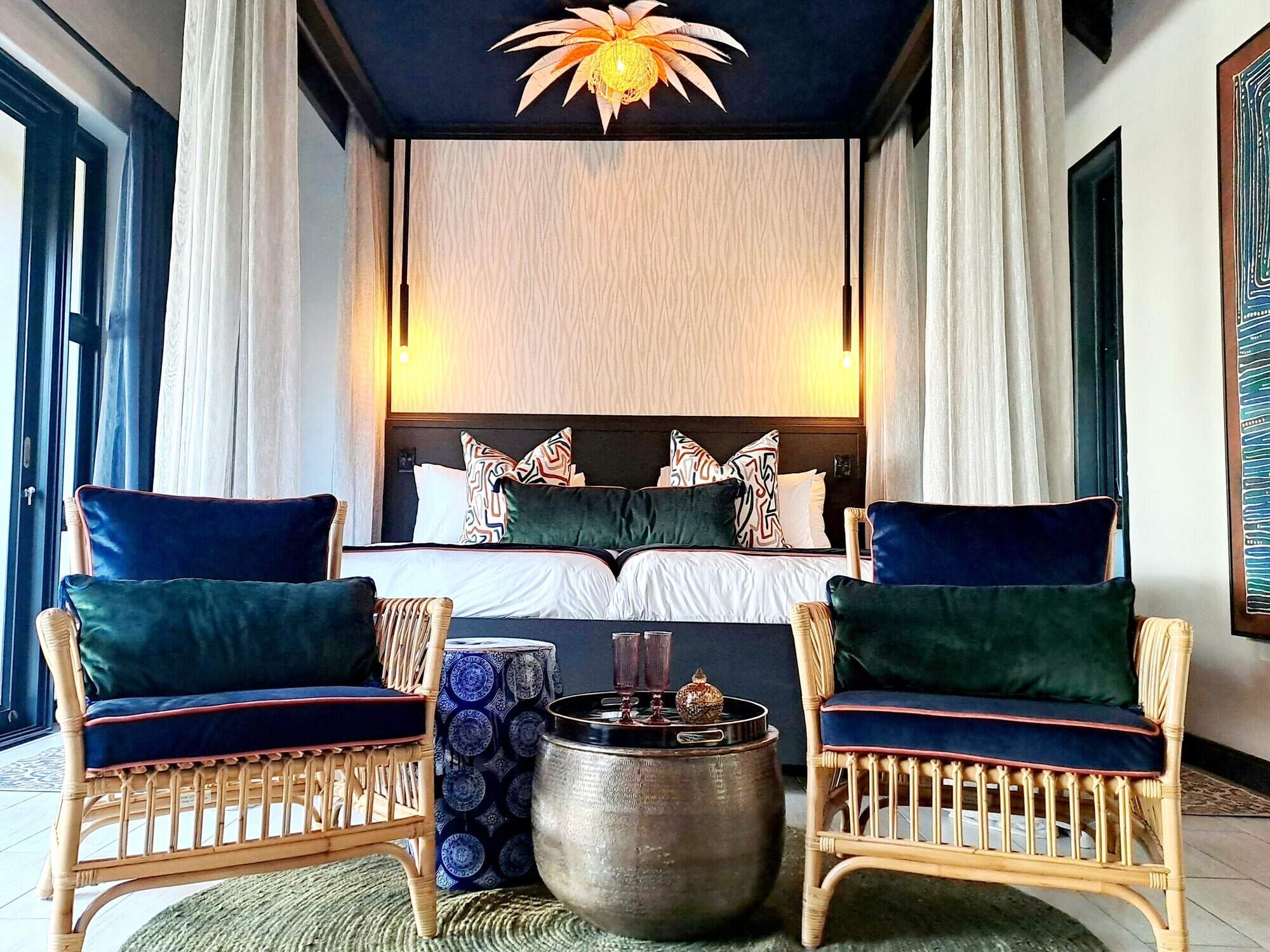
Namushasha Lodge
One of the larger lodges in the Bwabwata National Park, Namushasha is an economic option with an attractive river-side location.
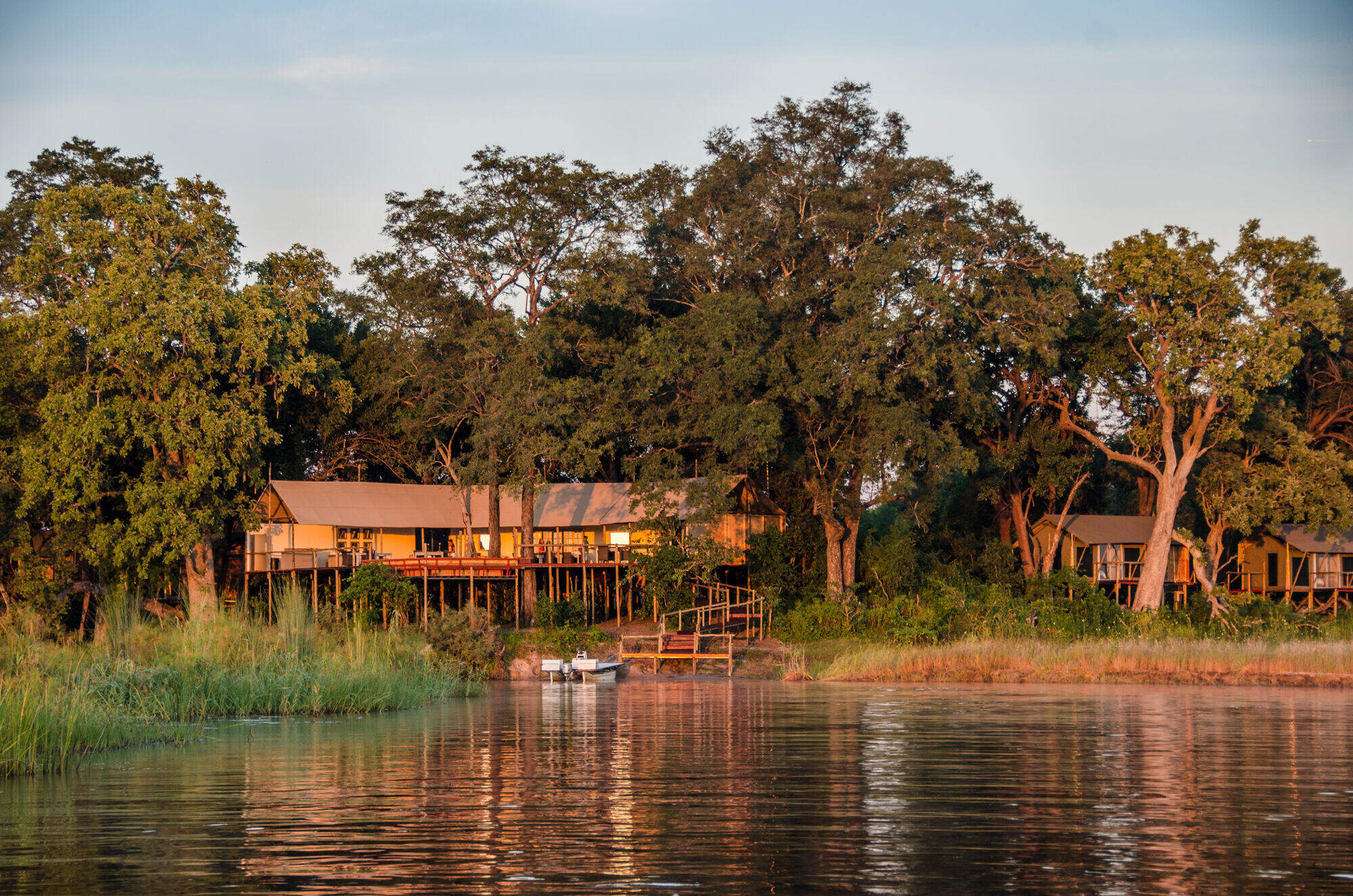
Kazile Island Lodge
On an island in the Kwando River within Bwabwata National Park, the remote Kazile lsland Lodge offers games drives, bush walks and boat cruises.
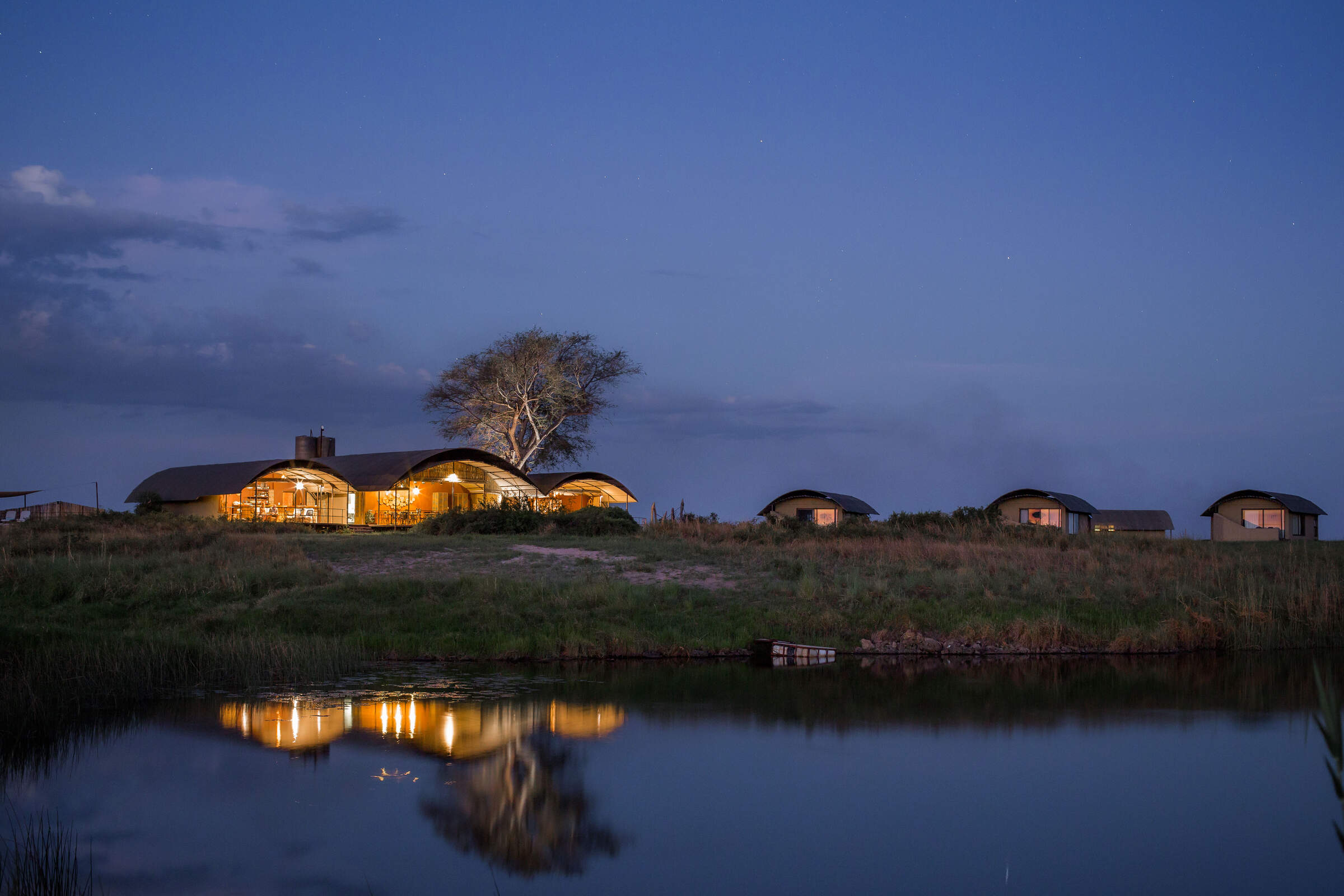
Serondela
Accessible only by river, Serondela combines the remoteness of Namibia’s Caprivi Strip with access to Botswana’s flagship Chobe National Park.
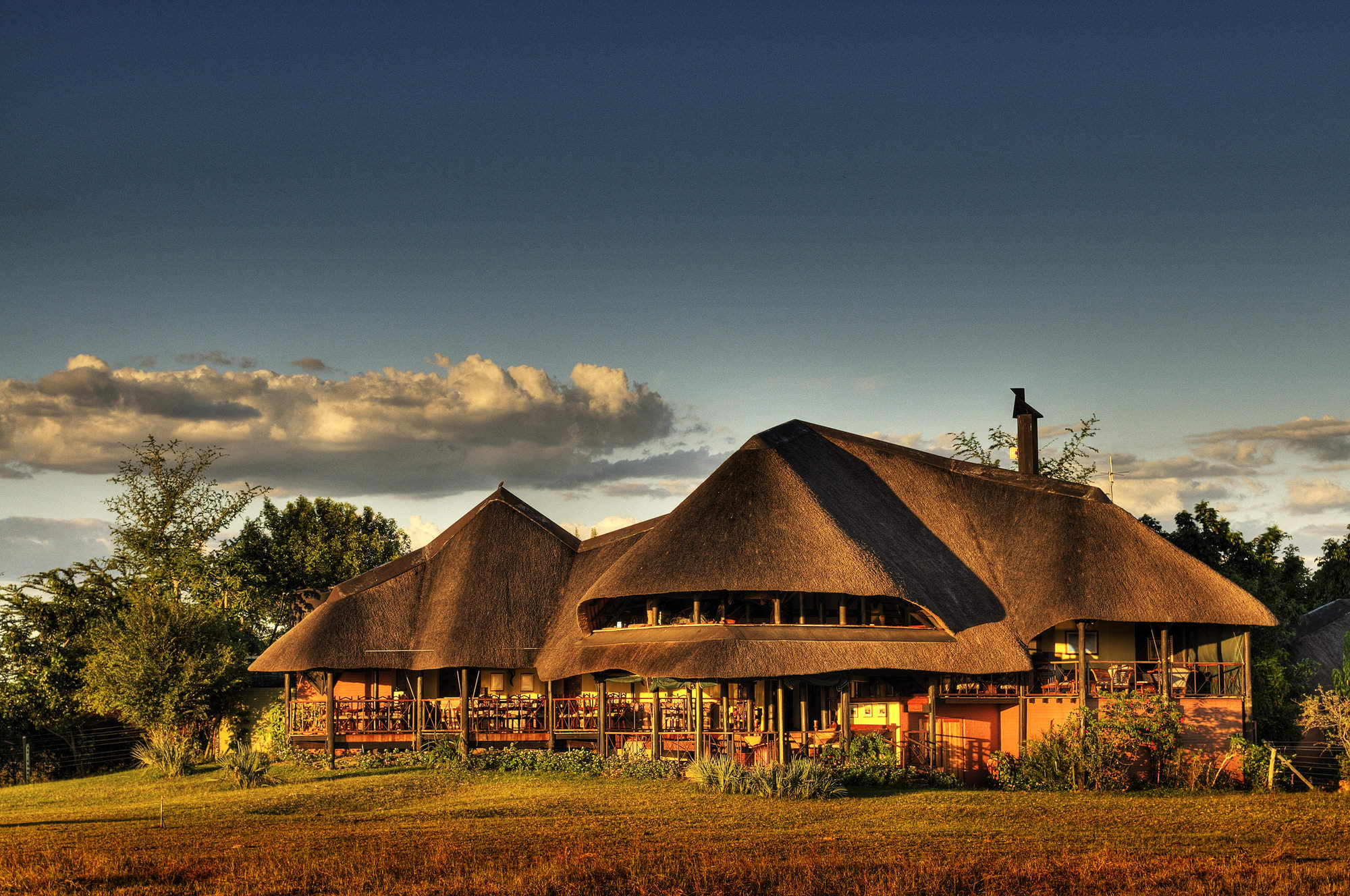
Chobe Savanna Lodge
Chobe Savanna Lodge stands opposite Chobe National Park, Botswana. Click here to learn more about the area and your options for a safari there.
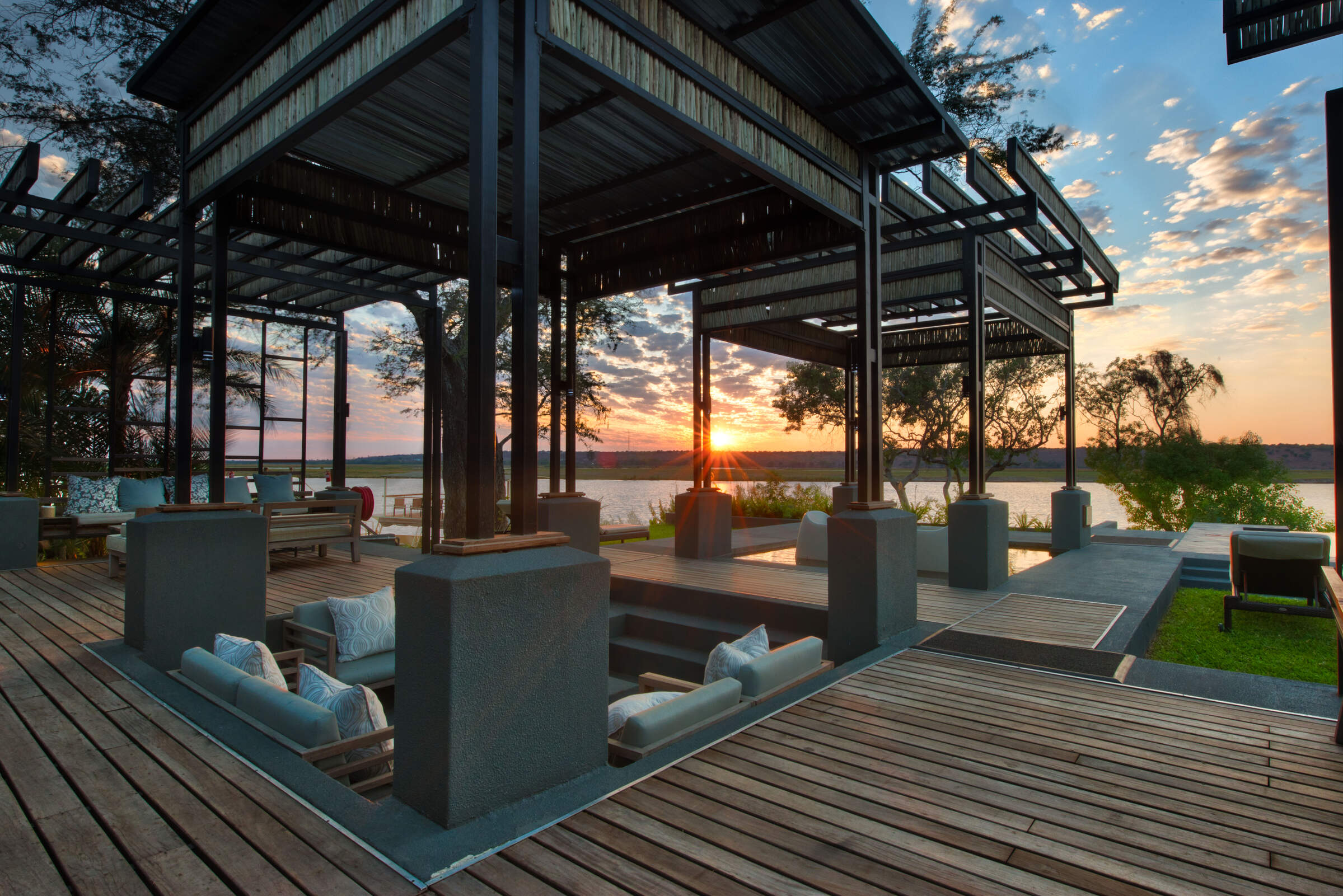
Chobe Water Villas
Chobe Water Villas is a beautiful and thoughtfully designed lodge, in a great location on the Namibian banks of the Chobe River.
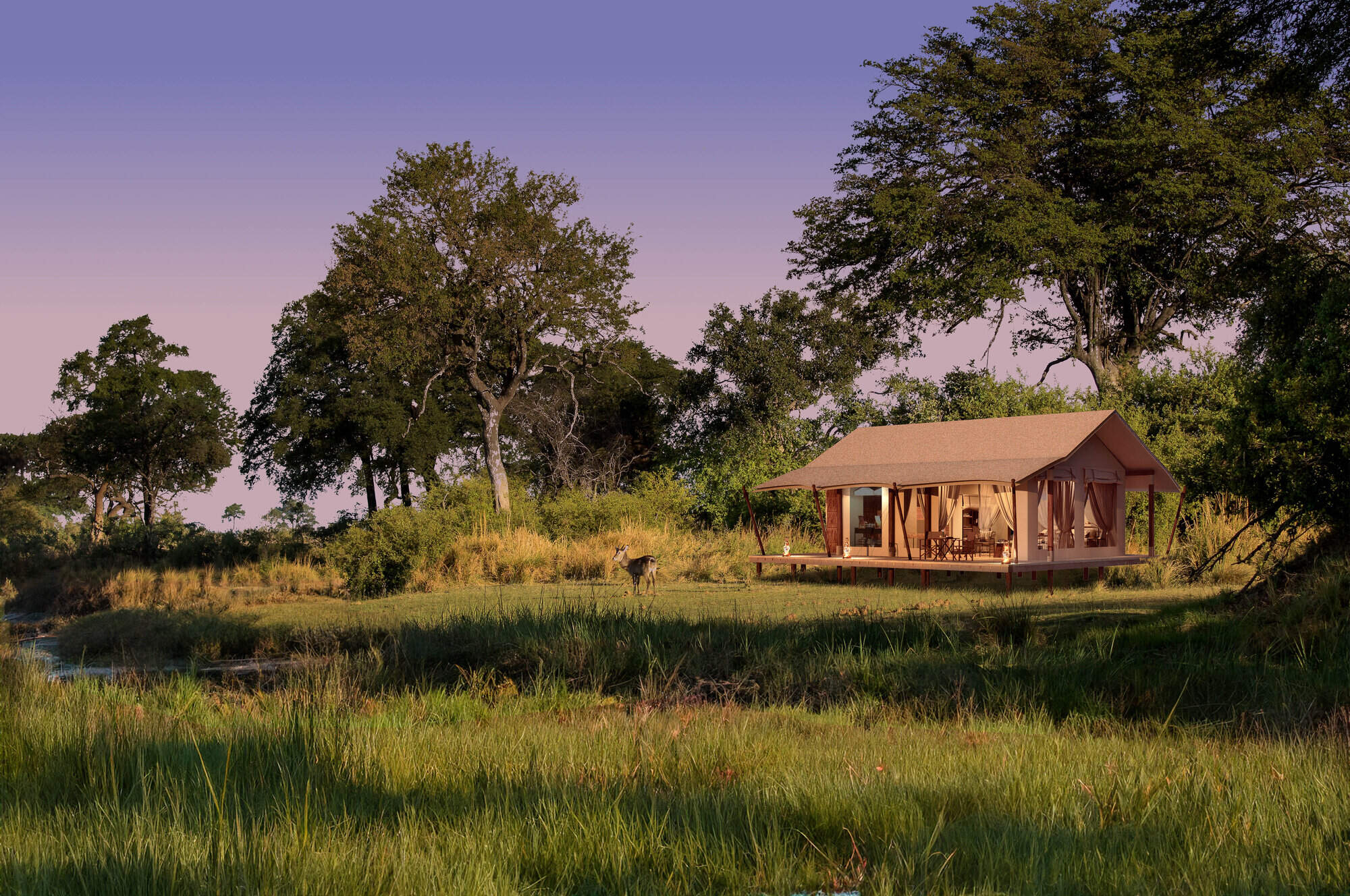
Nkasa Linyanti
On a private island within the remote Nkasa Rupara National Park, Nkasa Linyanti will combine tented comfort with an impressive range of safari activities.
When to go to Caprivi Strip
Our month by month guide: What it's like to visit Jackalberry Camp in Caprivi Strip
Jan
Feb
Mar
Apr
May
Jun
Jul
Aug
Sep
Oct
Nov
Dec
Caprivi Strip in January
January marks the heart of the rainy season in the Caprivi Strip. The Zambezi and Kwando rivers swell, nourishing the lush landscapes of Bwabwata and Mudumu National Parks. Rainfall can be heavy but localised, with temperatures around 30°C/86°F.
The verdant environment makes a refreshing change, especially in typically drier areas. Birdlife is abundant, with many species in full breeding plumage and migratory birds present in force. In Nkasa Rupara National Park, the abundant water allows wildlife to disperse, making it more challenging to spot. However, boat cruises along the major rivers offer excellent opportunities for wildlife viewing and birdwatching.
- Variable weather: hot and dry or humid with rain
- Occasional localised thunderstorms in the region
- Abundant birdlife, especially migratory species
- Wildlife dispersed, harder to spot in Bwabwata
- Few tourists, low rates at lodges and camps
Our view
This is not a great time to visit
Weather in January
Caprivi Strip in February
February is the wettest month in the Caprivi Strip, with the Zambezi Region experiencing some of the heaviest rainfall. The Kavango and Zambezi rivers reach their peak levels, creating a lush, green paradise.
Days alternate between clear, hot and humid, and cooler with building clouds culminating in spectacular thunderstorms. These storms can cause flash floods, bringing ephemeral rivers to life and making travel more challenging, especially in remote areas like Khaudum National Park. The landscape feels vibrant and alive; insects and smaller animals are more easily seen in Bwabwata and Mudumu National Parks. Many birds and animals are raising their young. However, the abundance of water and thicker vegetation can make it harder to spot larger wildlife. Boat safaris along the Chobe River offer excellent game viewing opportunities.
- Weather alternates between hot/dry and humid/rainy
- Thunderstorms meander over the lush landscape
- Vibrant birdlife in wetlands and floodplains
- Wildlife scattered across Bwabwata National Park
- Low tourist numbers, great deals on accommodation
Our view
This is not a great time to visit
Weather in February
Caprivi Strip in March
March usually sees the main rains in the Caprivi Strip tailing off, though precipitation varies across the region. Many days are clear with strong sun, while others may end with short, spectacular thunderstorms. As the month progresses, these rains reduce in frequency and volume. The landscape remains vivid and green, particularly in Bwabwata and Mudumu National Parks.
Wildlife viewing can be challenging as animals disperse, but patient observers may spot young animals and a variety of bird species in breeding plumage. The Kwando and Zambezi rivers remain high, offering excellent opportunities for boat safaris and fishing. Impalila Island becomes more accessible as water levels start to recede.
- Weather varies: clear and hot or cloudy and humid
- Thunderstorms decrease as the month progresses
- Animals well-fed after months of plentiful food
- Wildlife viewing challenging in Bwabwata Park
- Few visitors, low rates at lodges and camps
Our view
A good time to visit, with pros & cons
Weather in March
Caprivi Strip in April
April in the Caprivi Strip is characterised by increasingly dry weather, with temperatures starting to fall. Days remain pleasantly warm, and humidity is still high, but nights start to have a slight chill. The recent rains leave the region lush and green, particularly in Bwabwata and Nkasa Rupara National Parks.
Animals are in excellent condition, often with fast-growing young. As the atmosphere clears, photographers can capture spectacular landscapes and healthy wildlife. Stargazing becomes more rewarding as night skies clear.
In the northern parks like Mudumu and Bwabwata, water and food remain plentiful, so big game can be more dispersed. However, boat safaris along the Zambezi and Chobe rivers continue to offer excellent wildlife viewing opportunities. April is an ideal time for birdwatching, with many migratory species still present.
- Nights become cooler and drier in the region
- Easter sees a slight increase in visitor numbers
- Wildlife still dispersed in Bwabwata National Park
- Migratory birds begin their northward journey
- Lush green landscapes and crisp, clean air
Our view
A good time to visit, with pros & cons
Weather in April
Caprivi Strip in May
By May, the Caprivi Strip is drying out, but if rains have been good the land remains green. Wildlife in Bwabwata and Mudumu National Parks starts to congregate around permanent water sources. The air quality and clarity can be amazing, making this an ideal month for photography.
Typical days are warm with crisp, clear mornings and blue skies. Evenings are cool, with temperatures possibly dipping below 10°C/50°F overnight. Many lodges still charge low season prices, offering good value. The combination of increasingly good wildlife sightings, beautiful landscapes, and crystal-clear air makes May one of the best months to visit the Caprivi Strip. River activities along the Zambezi, Chobe, and Kwando rivers are particularly enjoyable, with pleasant temperatures and good wildlife viewing opportunities.
- Pleasant weather: warm days and cool nights
- Landscapes remain green as the region dries out
- Excellent visibility for wildlife photography
- Low visitor numbers and moderate lodge rates
- Wildlife starts to congregate near water sources
Our view
A very good time to visit
Weather in May
Caprivi Strip in June
June sees the Caprivi Strip fully dry, with blue, cloudless skies. Days are warm and dry, while nights can be cold, sometimes near freezing in more exposed areas. Warm clothing is essential for early morning game drives in Bwabwata and Mudumu National Parks.
Wildlife viewing enters its dry-season pattern, focusing around waterholes and rivers. The Kwando and Zambezi rivers offer excellent boat safari opportunities, with animals frequently coming to drink. Photographers benefit from superb air clarity, with minimal dust or smoke. Fishing, particularly for tigerfish, becomes increasingly popular as water levels stabilise.
Historically, June accommodation prices have been low, but the region's increasing popularity means some lodges now charge higher prices.
- Clear days, cold nights
- Great conditions for landscape photography
- Moderate lodge rates in this shoulder season
- Wildlife gathers at waterholes for easier viewing
- Some greenery persists in the lush landscape
Our view
A very good time to visit
Weather in June
Caprivi Strip in July
July in the Caprivi Strip offers reliably warm daytime temperatures above 20°C/68°F and excellent wildlife sightings. Rain is extremely rare, and clear skies make for great photographs, especially in Bwabwata and Nkasa Rupara National Parks. Nights can be very cold, potentially below freezing in exposed areas. Visitors should dress in layers and be prepared for chilly morning and evening game drives.
As vegetation dries out, game concentrates around water sources., and the Kwando and Zambezi rivers become wildlife hotspots, offering excellent boat safari opportunities. Lodges charge high season rates, and many are fully booked well in advance, especially during European school holidays.
- Dry days, cold nights ideal for stargazing
- European holidays bring more family travellers
- Peak season with higher rates and busy lodges
- Excellent wildlife viewing in Bwabwata Park
- Boat safaris popular on the region's rivers
Our view
A very good time to visit
Weather in July
Caprivi Strip in August
August is the height of winter in the Caprivi Strip. Expect cloudless skies and warm sun during the day, but nights can drop to freezing in exposed areas. Warm clothes are essential for early morning and evening activities.
The landscape is dry, with much vegetation turned golden brown, creating stark and beautiful scenery in Bwabwata and Mudumu National Parks. Wildlife congregates around available water sources, guaranteeing excellent animal sightings, especially along the Kwando and Zambezi rivers. Boat safaris and fishing expeditions are highly rewarding, with animals frequently seen coming to the water's edge to drink.
August is the most popular time to visit, particularly for families. Advance booking is crucial for the best lodges.
- Dry days and cold nights continue in Caprivi
- Cloudless skies offer spectacular stargazing
- Busier season, especially for family accommodation options
- Peak rates and advance bookings necessary
- Prime time for game drives and river safaris
Our view
Fantastic: the very best time to visit
Weather in August
Caprivi Strip in September
September in the Caprivi Strip brings blue, cloudless skies and fantastic wildlife viewing. Rain is almost unheard of, and temperatures gradually increase. Daily maximums can reach the low 30s Celsius / 80s Fahrenheit, though low humidity keeps it comfortable. Nights remain cool.
The air becomes dustier, creating atmospheric scenes for photography. In Bwabwata, Mudumu, and Nkasa Rupara National Parks, animals cluster around remaining water sources, making September one of the best months for game viewing. It's a popular time for visitors, with high season rates in effect. Safari enthusiasts often choose this month for its reliable wildlife sightings. Boat safaris along the Zambezi and Chobe rivers offer excellent opportunities to see elephants and other wildlife coming to drink.
- Excellent month for wildlife viewing in Caprivi
- Warming temperatures as the month progresses
- Landscape transitions from green to golden brown
- High season rates at lodges and camps continue
- Advance bookings essential for accommodation
Our view
Fantastic: the very best time to visit
Weather in September
Caprivi Strip in October
October is typically the hottest and driest month in the Caprivi Strip. Temperatures build throughout the month, with daily highs potentially exceeding 40°C/104°F, though the low humidity makes it bearable. In rare years, isolated showers may occur late in the month.
Wildlife viewing in Bwabwata and Mudumu National Parks is at its peak, with animals congregating around dwindling water sources. The Zambezi and Kwando rivers become crucial lifelines for wildlife. October is popular among wildlife enthusiasts and commands peak-season prices. Dust and occasional smoke can create hazy conditions, challenging for photographers but creating dramatic scenes. Boat safaris offer respite from the heat and excellent game viewing.
- Peak wildlife-viewing in Bwabwata National Park
- Hot and dry conditions throughout the region
- Hazy air due to dust and occasional bush fires
- High season rates at lodges and camps persist
- Early October sees many facilities fully booked
Our view
A very good time to visit
Weather in October
Caprivi Strip in November
November in the Caprivi Strip can be unpredictable, alternating between hot, dry periods and cooler, cloudier days. Typically, mornings start clear and hot, with clouds building in the afternoon. Humidity increases, often culminating in spectacular late-afternoon thunderstorms. These storms are usually localised, bringing relief to some areas while others remain dry. Places receiving rain quickly flush green, softening the landscape in Bwabwata and Nkasa Rupara National Parks.
Many mammals give birth as the first rains arrive. Once rains begin, wildlife in the parks becomes more dispersed, making game viewing more challenging. However, this is an excellent time for birdwatchers, with migrant species arriving in breeding plumage. Boat safaris along the major rivers continue to offer good wildlife viewing opportunities.
- Variable conditions depending on the rains
- New life emerges with the onset of rains
- Wildlife viewing shifts to wetter areas
- Shoulder season offers value for money
- Increased chance of showers later in the month
Our view
A good time to visit, with pros & cons
Weather in November
Caprivi Strip in December
December marks the first proper month of the Caprivi Strip's rainy season and is one of the hottest. Mornings are often clear, giving way to building clouds and occasional short, spectacular thunderstorms. These rains are generally welcomed, clearing the air of dust and prompting plant life to erupt across Bwabwata and Mudumu National Parks.
Young animals abound, and many bird species are in breeding plumage. Wildlife disperses widely with the increased water availability, making game viewing more challenging but rewarding for patient observers. The Zambezi and Kwando rivers offer cooler temperatures and continued opportunities for boat safaris and fishing. Christmas and New Year fall within local summer holidays, so accommodation options can be surprisingly busy, especially around Katima Mulilo and other major towns.
- Hot and humid, occasional cooling showers
- Landscape turns green where rain has fallen
- Renewed energy in the lush Caprivi environment
- Clear air enhances photography opportunities
- Excellent for birdwatching, challenging for mammals
Our view
This is not a great time to visit
Weather in December

Looking for inspiration on where to travel next?
Visit our trip chooser to explore your options and find inspiration for your perfect African adventure
Inspire me